For decades accusations against the Founding Fathers have abounded. One of the common criticisms is that the Founding Fathers were a collective group of atheists, agnostics, and or deists who wanted a strict separation of church and state, resulting in a secular government and public square. Some go as far as foolishly writing that these allegations are so evident that no actual evidence or proof is needed to substantiate their claims. While these charges are blatantly false, it can likewise be acknowledged that not every Founding Father or early American leader would fit in the category of born-again Christian (although most of them would). However, the overwhelming majority of Founding Fathers and early leaders wrote openly, and often about the influence of Christianity, the Bible and Jesus on their lives. While the following examples do not give the complete story of the faith journey of the individuals included in this list, these quotes and excerpts do give a glimpse into the thinking of these men. We encourage you to follow the footnotes and dig deeper into the writings of the Founding Fathers!
John Adams
SIGNER OF THE DECLARATION OF INDEPENDENCE; JUDGE; DIPLOMAT; ONE OF TWO SIGNERS OF THE BILL OF RIGHTS; SECOND PRESIDENT OF THE UNITED STATES
The general principles on which the fathers achieved independence were the general principles of Christianity. I will avow that I then believed, and now believe, that those general principles of Christianity are as eternal and immutable as the existence and attributes of God.1
Without religion, this world would be something not fit to be mentioned in polite company: I mean hell.2
The Christian religion is, above all the religions that ever prevailed or existed in ancient or modern times, the religion of wisdom, virtue, equity and humanity.3
Suppose a nation in some distant region should take the Bible for their only law book and every member should regulate his conduct by the precepts there exhibited. . . . What a Eutopia – what a Paradise would this region be!4
I have examined all religions, and the result is that the Bible is the best book in the world.5
John Quincy Adams
SIXTH PRESIDENT OF THE UNITED STATES; DIPLOMAT; SECRETARY OF STATE; U. S. SENATOR; U. S. REPRESENTATIVE; “OLD MAN ELOQUENT”; “HELL-HOUND OF ABOLITION”
My hopes of a future life are all founded upon the Gospel of Christ and I cannot cavil or quibble away [evade or object to]. . . . the whole tenor of His conduct by which He sometimes positively asserted and at others countenances [permits] His disciples in asserting that He was God.6
The hope of a Christian is inseparable from his faith. Whoever believes in the Divine inspiration of the Holy Scriptures must hope that the religion of Jesus shall prevail throughout the earth. Never since the foundation of the world have the prospects of mankind been more encouraging to that hope than they appear to be at the present time. And may the associated distribution of the Bible proceed and prosper till the Lord shall have made “bare His holy arm in the eyes of all the nations, and all the ends of the earth shall see the salvation of our God” [Isaiah 52:10].7
In the chain of human events, the birthday of the nation is indissolubly linked with the birthday of the Savior. The Declaration of Independence laid the cornerstone of human government upon the first precepts of Christianity.8
Samuel Adams
SIGNER OF THE DECLARATION OF INDEPENDENCE; “FATHER OF THE AMERICAN REVOLUTION”; RATIFIER OF THE U. S. CONSTITUTION; GOVERNOR OF MASSACHUSETTS
I . . . [rely] upon the merits of Jesus Christ for a pardon of all my sins.9
The name of the Lord (says the Scripture) is a strong tower; thither the righteous flee and are safe [Proverbs 18:10]. Let us secure His favor and He will lead us through the journey of this life and at length receive us to a better.10
I conceive we cannot better express ourselves than by humbly supplicating the Supreme Ruler of the world . . . that the confusions that are and have been among the nations may be overruled by the promoting and speedily bringing in the holy and happy period when the kingdoms of our Lord and Savior Jesus Christ may be everywhere established, and the people willingly bow to the scepter of Him who is the Prince of Peace.11
He also called on the State of Massachusetts to pray that . . .
- the peaceful and glorious reign of our Divine Redeemer may be known and enjoyed throughout the whole family of mankind.12
- we may with one heart and voice humbly implore His gracious and free pardon through Jesus Christ, supplicating His Divine aid . . . [and] above all to cause the religion of Jesus Christ, in its true spirit, to spread far and wide till the whole earth shall be filled with His glory.13
- with true contrition of heart to confess their sins to God and implore forgiveness through the merits and mediation of Jesus Christ our Savior.14
Josiah Bartlett
MILITARY OFFICER; SIGNER OF THE DECLARATION OF INDEPENDENCE; JUDGE; GOVERNOR OF NEW HAMPSHIRE
Called on the people of New Hampshire . . .
to confess before God their aggravated transgressions and to implore His pardon and forgiveness through the merits and mediation of Jesus Christ . . . [t]hat the knowledge of the Gospel of Jesus Christ may be made known to all nations, pure and undefiled religion universally prevail, and the earth be fill with the glory of the Lord.15
Gunning Bedford
MILITARY OFFICER; MEMBER OF THE CONTINENTAL CONGRESS;
SIGNER OF THE CONSTITUTION; FEDERAL JUDGE
To the triune God – the Father, the Son, and the Holy Ghost – be ascribed all honor and dominion, forevermore – Amen.16
Elias Boudinot
PRESIDENT OF CONGRESS; SIGNED THE PEACE TREATY TO END THE AMERICAN REVOLUTION; FIRST ATTORNEY ADMITTED TO THE U. S. SUPREME COURT BAR; FRAMER OF THE BILL OF RIGHTS; DIRECTOR OF THE U. S. MINT
Let us enter on this important business under the idea that we are Christians on whom the eyes of the world are now turned… [L]et us earnestly call and beseech Him, for Christ’s sake, to preside in our councils. . . . We can only depend on the all powerful influence of the Spirit of God, Whose Divine aid and assistance it becomes us as a Christian people most devoutly to implore. Therefore I move that some minister of the Gospel be requested to attend this Congress every morning . . . in order to open the meeting with prayer.17
A letter to his daughter:
You have been instructed from your childhood in the knowledge of your lost state by nature – the absolute necessity of a change of heart and an entire renovation of soul to the image of Jesus Christ – of salvation through His meritorious righteousness only – and the indispensable necessity of personal holiness without which no man shall see the Lord [Hebrews 12:14]. You are well acquainted that the most perfect and consummate doctrinal knowledge is of no avail without it operates on and sincerely affects the heart, changes the practice, and totally influences the will – and that without the almighty power of the Spirit of God enlightening your mind, subduing your will, and continually drawing you to Himself, you can do nothing. . . . And may the God of your parents (for many generations past) seal instruction to your soul and lead you to Himself through the blood of His too greatly despised Son, Who notwithstanding, is still reclaiming the world to God through that blood, not imputing to them their sins. To Him be glory forever!18
For nearly half a century have I anxiously and critically studied that invaluable treasure [the Bible]; and I still scarcely ever take it up that I do not find something new – that I do not receive some valuable addition to my stock of knowledge or perceive some instructive fact never observed before. In short, were you to ask me to recommend the most valuable book in the world, I should fix on the Bible as the most instructive both to the wise and ignorant. Were you to ask me for one affording the most rational and pleasing entertainment to the inquiring mind, I should repeat, it is the Bible; and should you renew the inquiry for the best philosophy or the most interesting history, I should still urge you to look into your Bible. I would make it, in short, the Alpha and Omega of knowledge.19
Jacob Broom
LEGISLATOR; SIGNER OF THE CONSTITUTION
A letter to his son, James, attending Princeton University:
I flatter myself you will be what I wish, but don’t be so much flatterer as to relax of your application – don’t forget to be a Christian. I have said much to you on this head, and I hope an indelible impression is made.20
Charles Carroll
SIGNER OF THE DECLARATION OF INDEPENDENCE; SELECTED AS DELEGATE TO THE CONSTITUTIONAL CONVENTION; FRAMER OF THE BILL OF RIGHTS; U. S. SENATOR
On the mercy of my Redeemer I rely for salvation and on His merits, not on the works I have done in obedience to His precepts.21
Grateful to Almighty God for the blessings which, through Jesus Christ Our Lord, He had conferred on my beloved country in her emancipation and on myself in permitting me, under circumstances of mercy, to live to the age of 89 years, and to survive the fiftieth year of independence, adopted by Congress on the 4th of July 1776, which I originally subscribed on the 2d day of August of the same year and of which I am now the last surviving signer.22
I, Charles Carroll. . . . give and bequeath my soul to God who gave it, my body to the earth, hoping that through and by the merits, sufferings, and mediation of my only Savior and Jesus Christ, I may be admitted into the Kingdom prepared by God for those who love, fear and truly serve Him.23
Congress, 1854
The great, vital, and conservative element in our system is the belief of our people in the pure doctrines and the divine truths of the Gospel of Jesus Christ.24
Congress, U. S. House Judiciary Committee, 1854
Had the people, during the Revolution, had a suspicion of any attempt to war against Christianity, that Revolution would have been strangled in its cradle… In this age, there can be no substitute for Christianity… That was the religion of the founders of the republic and they expected it to remain the religion of their descendants.25
John Dickinson
SIGNER OF THE CONSTITUTION; GOVERNOR OF PENNSYLVANIA; GOVERNOR OF DELAWARE;
GENERAL IN THE AMERICAN REVOLUTION
Rendering thanks to my Creator for my existence and station among His works, for my birth in a country enlightened by the Gospel and enjoying freedom, and for all His other kindnesses, to Him I resign myself, humbly confiding in His goodness and in His mercy through Jesus Christ for the events of eternity.26
[Governments] could not give the rights essential to happiness… We claim them from a higher source: from the King of kings, and Lord of all the earth.27
Gabriel Duvall
SOLDIER; JUDGE; SELECTED AS DELEGATE TO THE CONSTITUTIONAL CONVENTION;
COMPTROLLER OF THE U. S. TREASURY; U. S. SUPREME COURT JUSTICE
I resign my soul into the hands of the Almighty Who gave it, in humble hopes of His mercy through our Savior Jesus Christ.28
Benjamin Franklin
SIGNER OF THE DECLARATION; DIPLOMAT; PRINTER; SCIENTIST; SIGNER OF THE CONSTITUTION; GOVERNOR OF PENNSYLVANIA
As to Jesus of Nazareth, my opinion of whom you particularly desire, I think the system of morals and His religion as He left them to us, the best the world ever saw or is likely to see.29
The body of Benjamin Franklin, printer, like the cover of an old book, its contents torn out and stripped of its lettering and guilding, lies here, food for worms. Yet the work itself shall not be lost; for it will, as he believed, appear once more in a new and more beatiful edition, corrected and amended by the Author.30 (FRANKLIN’S EULOGY THAT HE WROTE FOR HIMSELF)
Elbridge Gerry
SIGNER OF THE DECLARATION OF INDEPENDENCE; MEMBER OF THE CONSTITUTIONAL CONVENTION; FRAMER OF THE BILL OF RIGHTS, GOVERNOR OF MASSACHUSETTS, VICE PRESIDENT OF THE UNITED STATES
He called on the State of Massachusetts to pray that . . .
- with one heart and voice we may prostrate ourselves at the throne of heavenly grace and present to our Great Benefactor sincere and unfeigned thanks for His infinite goodness and mercy towards us from our birth to the present moment for having above all things illuminated us by the Gospel of Jesus Christ, presenting to our view the happy prospect of a blessed immortality.31
- And for our unparalleled ingratitude to that Adorable Being Who has seated us in a land irradiated by the cheering beams of the Gospel of Jesus Christ . . . let us fall prostrate before offended Deity, confess sincerely and penitently our manifold sins and our unworthiness of the least of His Divine favors, fervently implore His pardon through the merits of our mediator.32
- And deeply impressed with a scene of our unparalleled ingratitude, let us contemplate the blessings which have flowed from the unlimited grave and favor of offended Deity, that we are still permitted to enjoy the first of Heaven’s blessings: the Gospel of Jesus Christ.33
Alexander Hamilton
REVOLUTIONARY GENERAL; SIGNER OF THE CONSTITUTION;
AUTHOR OF THE FEDERALIST PAPERS; SECRETARY OF THE TREASURY
Following his duel with Aaron Burr, in those final twenty four hours while life still remained in him, Hamilton called for two ministers, the Rev. J. M. Mason and the Rev. Benjamin Moore, to pray with him and administer Communion to him. Each of those two ministers reported what transpired. The Rev. Mason recounted:
[General Hamilton said] “I went to the field determined not to take his life.” He repeated his disavowal of all intention to hurt Mr. Burr; the anguish of his mind in recollecting what had passed; and his humble hope of forgiveness from his God. I recurred to the topic of the Divine compassion; the freedom of pardon in the Redeemer Jesus to perishing sinners. “That grace, my dear General, which brings salvation, is rich, rich” – “Yes,” interrupted he, “it is rich grace.” “And on that grace,” continued I, “a sinner has the highest encouragement to repose his confidence, because it is tendered to him upon the surest foundation; the Scrip¬ture testifying that we have redemption through the blood of Jesus, the forgiveness of sins according to the richness of His grace.” Here the General, letting go my hand, which he had held from the moment I sat down at his bed side, clasped his hands together, and, looking up towards Heaven, said, with emphasis, “I have a tender reliance on the mercy of the Al¬mighty, through the merits of the Lord Jesus Christ.”34
The Rev. Benjamin Moore reported:
[I]mmediately after he was brought from [the field] . . . a mes¬sage was sent informing me of the sad event, accompanied by a request from General Hamilton that I would come to him for the purpose of administering the Holy Communion. I went. . . . I proceeded to converse with him on the subject of his receiving the Communion; and told him that with respect to the qualifications of those who wished to become partakers of that holy ordinance, my inquires could not be made in lan¬guage more expressive than that which was used by our [own] Church. – [I asked], “Do you sincerely repent of your sins past? Have you a lively faith in God’s mercy through Christ, with a thankful remembrance of the death of Christ? And are you disposed to live in love and charity with all men?” He lifted up his hands and said, “With the utmost sincerity of heart I can answer those questions in the affirmative – I have no ill will against Col. Burr. I met him with a fixed resolution to do him no harm – I forgive all that happened.” . . . The Communion was then administered, which he received with great devotion, and his heart afterwards appeared to be perfectly at rest. I saw him again this morning, when, with his last faltering words, he expressed a strong confidence in the mercy of God through the intercession of the Redeemer. I remained with him until 2 o’clock this afternoon, when death closed the awful scene – he expired without a struggle, and almost without a groan. By reflecting on this melancholy event, let the humble believer be encouraged ever to hold fast that precious faith which is the only source of true consolation in the last extremity of nature. [And l]et the infidel be persuaded to abandon his opposition to that Gospel which the strong, inquisitive, and comprehensive mind of a Hamilton embraced.35
One other consequence of Hamilton’s untimely death was that it permanently halted the formation of a religious society Hamilton had proposed. Hamilton suggested that it be named the Christian Constitutional Society, and listed two goals for its formation: first, the support of the Christian religion; and second, the support of the Constitution of the United States. This organization was to have numerous clubs throughout each state which would meet regularly and work to elect to office those who reflected the goals of the Christian Constitutional Society.36
John Hancock
SIGNER OF THE DECLARATION OF INDEPENDENCE; PRESIDENT OF CONGRESS;
REVOLUTIONARY GENERAL; GOVERNOR OF MASSACHUSETTS
Sensible of the importance of Christian piety and virtue to the order and happiness of a state, I cannot but earnestly commend to you every measure for their support and encouragement.37
He called on the entire state to pray “that universal happiness may be established in the world [and] that all may bow to the scepter of our Lord Jesus Christ, and the whole earth be filled with His glory.”38
He also called on the State of Massachusetts to pray . . .
- that all nations may bow to the scepter of our Lord and Savior Jesus Christ and that the whole earth may be filled with his glory.39
- that the spiritual kingdom of our Lord and Savior Jesus Christ may be continually increasing until the whole earth shall be filled with His glory.40
- to confess their sins and to implore forgiveness of God through the merits of the Savior of the World.41
- to cause the benign religion of our Lord and Savior Jesus Christ to be known, understood, and practiced among all the inhabitants of the earth.42
- to confess their sins before God and implore His forgiveness through the merits and mediation of Jesus Christ, our Lord and Savior.43
- that He would finally overrule all events to the advancement of the Redeemer’s kingdom and the establishment of universal peace and good will among men.44
- that the kingdom of our Lord and Savior Jesus Christ may be established in peace and righteousness among all the nations of the earth.45
- that with true contrition of heart we may confess our sins, resolve to forsake them, and implore the Divine forgiveness, through the merits and mediation of Jesus Christ, our Savior. . . . And finally to overrule all the commotions in the world to the spreading the true religion of our Lord Jesus Christ in its purity and power among all the people of the earth.46
John Hart
JUDGE; LEGISLATOR; SIGNER OF THE DECLARATION
[T]hanks be given unto Almighty God therefore, and knowing that it is appointed for all men once to die and after that the judgment [Hebrews 9:27] . . . principally, I give and recommend my soul into the hands of Almighty God who gave it and my body to the earth to be buried in a decent and Christian like manner . . . to receive the same again at the general resurrection by the mighty power of God.47
Patrick Henry
REVOLUTIONARY GENERAL; LEGISLATOR; “THE VOICE OF LIBERTY”;
RATIFIER OF THE U. S. CONSTITUTION; GOVERNOR OF VIRGINIA
Being a Christian… is a character which I prize far above all this world has or can boast.48
The Bible… is a book worth more than all the other books that were ever printed.49
Righteousness alone can exalt [America] as a nation…Whoever thou art, remember this; and in thy sphere practice virtue thyself, and encourage it in others.50
The great pillars of all government and of social life [are] virtue, morality, and religion. This is the armor, my friend, and this alone, that renders us invincible.51
This is all the inheritance I can give to my dear family. The religion of Christ can give them one which will make them rich indeed.52
Samuel Huntington
SIGNER OF THE DECLARATION OF INDEPENDENCE; PRESIDENT OF CONGRESS;
JUDGE; GOVERNOR OF CONNECTICUT
It becomes a people publicly to acknowledge the over-ruling hand of Divine Providence and their dependence upon the Supreme Being as their Creator and Merciful Preserver . . . and with becoming humility and sincere repentance to supplicate the pardon that we may obtain forgiveness through the merits and mediation of our Lord and Savior Jesus Christ.53
James Iredell
RATIFIER OF THE U. S. CONSTITUTION; ATTORNEY GENERAL OF NORTH CAROLINA;
U. S. SUPREME COURT JUSTICE APPOINTED BY PRESIDENT GEORGE WASHINGTON
For my part, I am free and ready enough to declare that I think the Christian religion is a Divine institution; and I pray to God that I may never forget the precepts of His religion or suffer the appearance of an inconsistency in my principles and practice.54
John Jay
PRESIDENT OF CONGRESS; DIPLOMAT; AUTHOR OF THE FEDERALIST PAPERS;
ORIGINAL CHIEF JUSTICE OF THE U. S. SUPREME COURT; GOVERNOR OF NEW YORK
Condescend, merciful Father! to grant as far as proper these imperfect petitions, to accept these inadequate thanksgivings, and to pardon whatever of sin hath mingled in them for the sake of Jesus Christ, our blessed Lord and Savior; unto Whom, with Thee, and the blessed Spirit, ever one God, be rendered all honor and glory, now and forever.55
Unto Him who is the author and giver of all good, I render sincere and humble thanks for His manifold and unmerited blessings, and especially for our redemption and salvation by His beloved Son. . . . Blessed be His holy name.56
Mercy and grace and favor did come by Jesus Christ, and also that truth which verified the promises and predictions concerning Him and which exposed and corrected the various errors which had been imbibed respecting the Supreme Being, His attributes, laws, and dispensations.57
By conveying the Bible to people . . . we certainly do them a most interesting act of kindness. We thereby enable them to learn that man was originally created and placed in a state of happiness, but, becoming disobedient, was subjected to the degradation and evils which he and his posterity have since experienced. The Bible will also inform them that our gracious Creator has provided for us a Redeemer in whom all the nations of the earth should be blessed – that this Redeemer has made atonement “for the sins of the whole world,” and thereby reconciling the Divine justice with the Divine mercy, has opened a way for our redemption and salvation; and that these inestimable benefits are of the free gift and grace of God, not of our deserving, nor in our power to deserve. The Bible will also [encourage] them with many explicit and consoling assurances of the Divine mercy to our fallen race, and with repeated invitations to accept the offers of pardon and reconciliation. . . . They, therefore, who enlist in His service, have the highest encouragement to fulfill the du¬ties assigned to their respective stations; for most certain it is, that those of His followers who [participate in] His conquests will also participate in the tran¬scendent glories and blessings of His Triumph.58
I recommend a general and public return of praise and thanksgiving to Him from whose goodness these blessings descend. The most effectual means of securing the continuance of our civil and religious liberties is always to remember with reverence and gratitude the source from which they flow.59
The Bible is the best of all books, for it is the word of God and teaches us the way to be happy in this world and in the next. Continue therefore to read it and to regulate your life by its precepts.60
[T]he evidence of the truth of Christianity requires only to be carefully examined to produce conviction in candid minds… they who undertake that task will derive advantages.61
Providence has given to our people the choice of their rulers, and it is the duty as well as the privilege and interest of our Christian nation, to select and prefer Christians for their rulers.62
Thomas Jefferson
SIGNER OF THE DECLARATION OF INDEPENDENCE; DIPLOMAT; GOVERNOR OF VIRGINIA; SECRETARY OF STATE;
THIRD PRESIDENT OF THE UNITED STATES
The doctrines of Jesus are simple, and tend all to the happiness of man.63
The practice of morality being necessary for the well being of society, He [God] has taken care to impress its precepts so indelibly on our hearts that they shall not be effaced by the subtleties of our brain. We all agree in the obligation of the moral principles of Jesus and nowhere will they be found delivered in greater purity than in His discourses.64
I am a Christian in the only sense in which He wished anyone to be: sincerely attached to His doctrines in preference to all others.65
I am a real Christian – that is to say, a disciple of the doctrines of Jesus Christ.66
William Samuel Johnson
JUDGE; MEMBER OF THE CONTINENTAL CONGRESS; SIGNER OF THE CONSTITUTION;
FRAMER OF THE BILL OF RIGHTS; PRESIDENT OF COLUMBIA COLLEGE; U. S. SENATOR
[I] . . . am endeavoring . . . to attend to my own duty only as a Christian. . . . let us take care that our Christianity, though put to the test . . . be not shaken, and that our love for things really good wax not cold.67
In an address to graduates:
You this day. . . . have, by the favor of Providence and the at¬tention of friends, received a public education, the purpose whereof hath been to qualify you the better to serve your Creator and your country. You have this day invited this au¬dience to witness the progress you have made. . . . Thus you assume the character of scholars, of men, and of citizens. . . . Go, then, . . . and exercise them with diligence, fidelity, and zeal. . . . Your first great duties, you are sensible, are those you owe to Heaven, to your Creator and Redeemer. Let these be ever present to your minds, and exemplified in your lives and conduct. Imprint deep upon your minds the principles of piety towards God, and a reverence and fear of His holy name. The fear of God is the beginning of wisdom and its [practice] is everlasting [happiness] . . . . Reflect deeply and often upon [your] relations [with God]. Remember that it is in God you live and move and have your being, – that, in the language of David, He is about your bed and about your path and spieth out all your ways – that there is not a thought in your hearts, nor a word upon your tongues, but lo! He knoweth them altogether, and that He will one day call you to a strict account for all your conduct in this mortal life. Remember, too, that you are the redeemed of the Lord, that you are bought with a price, even the inestimable price of the precious blood of the Son of God. Adore Jehovah, therefore, as your God and your Judge. Love, fear, and serve Him as your Creator, Redeemer, and Sanctifier. Acquaint yourselves with Him in His word and holy ordinances. . . . [G]o forth into the world firmly resolved neither to be allured by its vanities nor contaminated by its vices, but to run with patience and perseverance, with firmness and [cheerfulness], the glorious career of religion, honor, and virtue. . . . Finally, . . . in the elegant and expressive language are honest, whatsoever things are just, whatsoever things are pure, whatsoever things are lovely, whatsoever things are of good report, if there be any virtue, and if there be any praise, think on these things” – and do them, and the God of peace shall be with you, to whose most gracious protection I now commend you, humbly imploring Almighty Goodness that He will be your guardian and your guide, your protector and the rock of your defense, your Savior and your God.68
James Kent
JUDGE; LAW PROFESSOR; “FATHER OF AMERICAN JURISPRUDENCE”
My children, I wish to talk to you. During my early and middle life I was, perhaps, rather skeptical with regard to some of the truths of Christianity. Not that I did not have the utmost respect for religion and always read my Bible, but the doctrine of the atonement was one I never could understand, and I felt inclined to consider as impossible to be received in the way Divines taught it. I believe I was rather inclined to Unitarianism; but of late years my views have altered. I believe in the doctrines of the prayer books as I understand them, and hope to be saved through the merits of Jesus Christ. . . . My object in telling you this is that if anything happens to me, you might know, and perhaps it would console you to remember, that on this point my mind is clear: I rest my hopes of salvation on the Lord Jesus Christ.69
Francis Scott Key
U. S. ATTORNEY FOR THE DISTRICT OF COLUMBIA; AUTHOR OF THE “STAR SPANGLED BANNER”
[M]ay I always hear that you are following the guidance of that blessed Spirit that will lead you into all truth, leaning on that Almighty arm that has been extended to deliver you, trusting only in the only Savior, and going on in your way to Him rejoicing.70
James Madison
SIGNER OF THE CONSTITUTION; AUTHOR OF THE FEDERALIST PAPERS; FRAMER OF THE
BILL OF RIGHTS; SECRETARY OF STATE; FOURTH PRESIDENT OF THE UNITED STATES
A watchful eye must be kept on ourselves lest, while we are building ideal monuments of renown and bliss here, we neglect to have our names enrolled in the Annals of Heaven.71
I have sometimes thought there could not be a stronger testimony in favor of religion or against temporal enjoyments, even the most rational and manly, than for men who occupy the most honorable and gainful departments and [who] are rising in reputation and wealth, publicly to declare their unsatisfactoriness by becoming fervent advocates in the cause of Christ; and I wish you may give in your evidence in this way.72
James Manning
MEMBER OF THE CONTINENTAL CONGRESS; PRESIDENT OF BROWN UNIVERSITY
I rejoice that the religion of Jesus prevails in your parts; I can tell you the same agreeable news from this quarter. Yesterday I returned from Piscataway in East Jersey, where was held a Baptist annual meeting (I think the largest I ever saw) but much more remarkable still for the Divine influences which God was pleased to grant. Fifteen were baptized; a number during the three days professed to experience a change of heart. Christians were remarkably quickened; multitudes appeared.73
Henry Marchant
MEMBER OF THE CONTINENTAL CONGRESS; ATTORNEY GENERAL OF RHODE ISLAND; RATIFIER OF THE U. S. CONSTITUTION; FEDERAL JUDGE APPOINTED BY PRESIDENT GEORGE WASHINGTON
And may God grant that His grace may really affect your heart with suitable impressions of His goodness. Remember that God made you, that God keeps you alive and preserves you from all harm, and gives you all the powers and the capacity whereby you are able to read of Him and of Jesus Christ, your Savior and Redeemer, and to do every other needful business of life. And while you look around you and see the great privileges and advantages you have above what other children have (of learning to read and write, of being taught the meaning of the great truths of the Bible), you must remember not to be proud on that account but to bless God and be thankful and endeavor in your turn to assist others with the knowledge you may gain.74(to his daughter)
George Mason
DELEGATE AT THE CONSTITUTIONAL CONVENTION; “FATHER OF THE BILL OF RIGHTS”
I give and bequeath my soul to Almighty God that gave it me, hoping that through the meritorious death and passion of our Savior and Redeemer Jesus Christ to receive absolution and remission for all my sins.75
My soul I resign into the hands of my Almighty Creator, Whose tender mercies are all over His works. . humbly hoping from His unbounded mercy and benevolence, through the merits of my blessed Savior, a remission of my sins.76
James McHenry
REVOLUTIONARY OFFICER; SIGNER OF THE CONSTITUTION; RATIFIER OF THE U. S. CONSTITUTION;
SECRETARY OF WAR UNDER PRESIDENTS GEORGE WASHINGTON AND JOHN ADAMS
[P]ublic utility pleads most forcibly for the general distribution of the Holy Scriptures. Without the Bible, in vain do we increase penal laws and draw entrenchments around our institutions.77
Bibles are strong protections. Where they abound, men cannot pursue wicked courses and at the same time enjoy quiet conscience.78
Thomas McKean
SIGNER OF THE DECLARATION OF INDEPENDENCE; PRESIDENT OF CONGRESS; RATIFIER OF THE U. S. CONSTITUTION; CHIEF JUSTICE OF THE SUPREME COURT OF PENNSYLVANIA; GOVERNOR OF PENNSYLVANIA; GOVERNOR OF DELAWARE
In the case Respublica v. John Roberts,79 John Roberts was sentenced to death after a jury found him guilty of treason. Chief Justice McKean then told him:
You will probably have but a short time to live. Before you launch into eternity, it be¬hooves you to improve the time that may be allowed you in this world: it behooves you most seriously to reflect upon your past conduct; to repent of your evil deeds; to be incessant in prayers to the great and merciful God to forgive your manifold transgressions and sins; to teach you to rely upon the merit and passion of a dear Redeemer, and thereby to avoid those regions of sorrow – those doleful shades where peace and rest can never dwell, where even hope cannot enter. It behooves you to seek the [fellowship], advice, and prayers of pious and good men; to be [persistent] at the Throne of Grace, and to learn the way that leadeth to happiness. May you, reflecting upon these things, and pursuing the will of the great Father of light and life, be received into [the] company and society of angels and archangels and the spirits of just men made perfect; and may you be qualified to enter into the joys of Heaven – joys unspeakable and full of glory!80
Gouverneur Morris
REVOLUTIONARY OFFICER; MEMBER OF THE CONTINENTAL CONGRESS;
SIGNER OF THE CONSTITUTION; “PENMAN OF THE CONSTITUTION”; DIPLOMAT; U. S. SENATOR
There must be religion. When that ligament is torn, society is disjointed and its members perish… [T]he most important of all lessons is the denunciation of ruin to every state that rejects the precepts of religion.81
Your good morals in the army give me sincere pleasure as it hath long been my fixed opinion that virtue and religion are the great sources of human happiness. More especially is it necessary in your profession firmly to rely upon the God of Battles for His guardianship and protection in the dreadful hour of trial. But of all these things you will and I hope in the merciful Lord.82
Jedidiah Morse
HISTORIAN OF THE AMERICAN REVOLUTION; EDUCATOR; “FATHER OF AMERICAN GEOGRAPHY”;
APPOINTED BY SECRETARY OF STATE TO DOCUMENT CONDITION OF INDIAN AFFAIRS
To the kindly influence of Christianity we owe that degree of civil freedom and political and social happiness which mankind now enjoys. All efforts made to destroy the foundations of our Holy Religion ultimately tend to the subversion also of our political freedom and happiness. In proportion as the genuine effects of Christianity are diminished in any nation… in the same proportion will the people of that nation recede from the blessings of genuine freedom… Whenever the pillars of Christianity shall be overthrown, our present republican forms of government – and all the blessings which flow from them – must fall with them.83
John Morton
LEGISLATOR; JUDGE; SIGNER OF THE DECLARATION
With an awful reverence to the Great Almighty God, Creator of all mankind, being sick and weak in body but of sound mind and memory, thanks be given to Almighty God for the same.84
James Otis
LEADER OF THE SONS OF LIBERTY; ATTORNEY & JURIST; MENTOR OF JOHN HANCOCK AND SAMUEL ADAMS
Has [government] any solid foundation? Any chief cornerstone?… I think it has an everlasting foundation in the unchangeable will of God… The sum of my argument is that civil government is of God.85
Robert Treat Paine
MILITARY CHAPLAIN; SIGNER OF THE DECLARATION OF INDEPENDENCE; ATTORNEY GENERAL OF MASSACHUSETTS; JUDGE
I desire to bless and praise the name of God most high for appointing me my birth in a land of Gospel Light where the glorious tidings of a Savior and of pardon and salvation through Him have been continually sounding in mine ears.86
I am constrained to express my adoration of the Supreme Being, the Author of my existence, in full belief of His Providential goodness and His forgiving mercy revealed to the world through Jesus Christ, through whom I hope for never ending happiness in a future state.87
I believe the Bible to be the written word of God and to contain in it the whole rule of faith and manners.88
William Paterson
ATTORNEY GENERAL OF NEW JERSEY; SIGNER OF THE CONSTITUTION; U. S. SENATOR; GOVERNOR OF NEW JERSEY; U.S. SUPREME COURT JUSTICE
When the righteous rule, the people rejoice; when the wicked rule, the people groan. [invoking Proverbs 29:2 to instruct a grand jury].89
Timothy Pickering
REVOLUTIONARY GENERAL; JUDGE; RATIFIER OF THE U. S. CONSTITUTION; POSTMASTER GENERAL UNDER PRESIDENT GEORGE WASHINGTON; SECRETARY OF WAR UNDER PRESIDENTS GEORGE WASHINGTON AND JOHN ADAMS; SECRETARY OF STATE UNDER PRESIDENT JOHN ADAMS
Pardon, we beseech Thee, all our offences of omission and commission; and grant that in all our thoughts, words, and actions, we may conform to Thy known will manifested in our consciences and in the revelations of Jesus Christ, our Savior.90
[W]e do not grieve as those who have no… resurrection to a life immortal. Here the believers in Christianity manifest their superior advantages, for life and immortality were brought to light by the gospel of Jesus Christ [II Timothy 1:10]. Prior to that revelation even the wisest and best of mankind were involved in doubt and they hoped, rather than believed, that the soul was immortal.91
Charles Cotesworth Pinckney
REVOLUTIONARY GENERAL; LEGISLATOR; SIGNER OF THE CONSTITUTION; DIPLOMAT
To the eternal and only true God be all honor and glory, now and forever. Amen!92
John Randolph of Roanoke
CONGRESSMAN UNDER PRESIDENTS JOHN ADAMS, THOMAS JEFFERSON, JAMES MADISON, JAMES MONROE,
JOHN QUINCY ADAMS, ANDREW JACKSON; U. S. SENATOR; DIPLOMAT
I have thrown myself, reeking with sin, on the mercy of God, through Jesus Christ His blessed Son and our (yes, my friend, our) precious Redeemer; and I have assurances as strong as that I now owe nothing to your rank that the debt is paid and now I love God – and with reason. I once hated him – and with reason, too, for I knew not Christ. The only cause why I should love God is His goodness and mercy to me through Christ.93
I am at last reconciled to my God and have assurance of His pardon through faith in Christ, against which the very gates of hell cannot prevail. Fear hath been driven out by perfect love.94
[I] have looked to the Lord Jesus Christ, and hope I have obtained pardon.95
[I] still cling to the cross of my Redeemer, and with God’s aid firmly resolve to lead a life less unworthy of one who calls himself the humble follower of Jesus Christ.96
Benjamin Rush
SIGNER OF THE DECLARATION OF INDEPENDENCE; SURGEON GENERAL OF THE CONTINENTAL ARMY; RATIFIER OF THE U. S. CONSTITUTION; “FATHER OF AMERICAN MEDICINE”; TREASURER OF THE U. S. MINT; “FATHER OF PUBLIC SCHOOLS UNDER THE CONSTITUTION”
The Gospel of Jesus Christ prescribes the wisest rules for just conduct in every situation of life. Happy they who are enabled to obey them in all situations! . . . My only hope of salvation is in the infinite tran¬scendent love of God manifested to the world by the death of His Son upon the Cross. Noth¬ing but His blood will wash away my sins [Acts 22:16]. I rely exclusively upon it. Come, Lord Jesus! Come quickly! [Revelation 22:20]97
I do not believe that the Constitution was the offspring of inspiration, but I am as satisfied that it is as much the work of a Divine Providence as any of the miracles recorded in the Old and New Testament.98
By renouncing the Bible, philosophers swing from their moorings upon all moral subjects… It is the only correct map of the human heart that ever has been published.99
[T]he greatest discoveries in science have been made by Christian philosophers and . . . there is the most knowledge in those countries where there is the most Christianity.100
[T]he only means of establishing and perpetuating our republican forms of government is the universal education of our youth in the principles of Christianity by means of the Bible.101
The great enemy of the salvation of man, in my opinion, never invented a more effective means of limiting Christianity from the world than by persuading mankind that it was improper to read the Bible at schools.102
[C]hristianity is the only true and perfect religion; and… in proportion as mankind adopt its principles and obey its precepts, they will be wise and happy.103
The Bible contains more knowledge necessary to man in his present state than any other book in the world.104
The Bible, when not read in schools, is seldom read in any subsequent period of life… [T]he Bible… should be read in our schools in preference to all other books because it contains the greatest portion of that kind of knowledge which is calculated to produce private and public happiness.105
Roger Sherman
SIGNER OF THE DECLARATION; SIGNER OF THE CONSTITUTION; “MASTER BUILDER OF THE CONSTITUTION”; JUDGE; FRAMER OF THE BILL OF RIGHTS; U. S. SENATOR
I believe that there is one only living and true God, existing in three persons, the Father, the Son, and the Holy Ghost, the same in substance, equal in power and glory. That the Scriptures of the Old and New Testaments are a revelation from God, and a complete rule to direct us how we may glorify and enjoy Him. . . . That He made man at first perfectly holy; that the first man sinned, and as he was the public head of his posterity, they all became sinners in consequence of his first transgression, are wholly indisposed to that which is good and inclined to evil, and on account of sin are liable to all the miseries of this life, to death, and to the pains of hell forever. I believe that God . . . did send His own Son to become man, die in the room and stead of sinners, and thus to lay a foundation for the offer of pardon and salvation to all mankind, so as all may be saved who are willing to accept the Gospel offer. . . . I believe a visible church to be a congregation of those who make a credible profession of their faith in Christ, and obedience to Him, joined by the bond of the covenant. . . . I believe that the sacraments of the New Testament are baptism and the Lord’s Supper. . . . I believe that the souls of believers are at their death made perfectly holy, and immediately taken to glory: that at the end of this world there will be a resurrection of the dead, and a final judgment of all mankind, when the righteous shall be publicly acquitted by Christ the Judge and admitted to everlasting life and glory, and the wicked be sentenced to everlasting punishment.106
God commands all men everywhere to repent. He also commands them to believe on the Lord Jesus Christ, and has assured us that all who do repent and believe shall be saved… [G]od… has absolutely promised to bestow them on all these who are willing to accept them on the terms of the Gospel – that is, in a way of free grace through the atonement. “Ask and ye shall receive [John 16:24]. Whosoever will, let him come and take of the waters of life freely [Revelation 22:17]. Him that cometh unto me I will in no wise cast out” [John 6:37].107
[I]t is the duty of all to acknowledge that the Divine Law which requires us to love God with all our heart and our neighbor as ourselves, on pain of eternal damnation, is Holy, just, and good. . . . The revealed law of God is the rule of our duty.108
True Christians are assured that no temptation (or trial) shall happen to them but what they shall be enabled to bear; and that the grace of Christ shall be sufficient for them.109
“The volume which he consulted more than any other was the Bible. It was his custom, at the commencement of every session of Congress, to purchase a copy of the Scriptures, to peruse it daily, and to present it to one of his children on his return.”110
Richard Stockton
JUDGE; SIGNER OF THE DECLARATION OF INDEPENDENCE
[A]s my children will have frequent occasion of perusing this instrument, and may probably be particularly impressed with the last words of their father, I think it proper here not only to subscribe to the entire belief of the great and leading doctrines of the Christian religion, such as the being of God; the universal defection and depravity of human nature; the Divinity of the person and the completeness of the redemption purchased by the blessed Savior; the necessity of the operations of the Divine Spirit; of Divine faith accompanied with an habitual virtuous life; and the universality of the Divine Providence: but also, in the bowels of a father’s affection, to exhort and charge [my children] that the fear of God is the beginning of wisdom, that the way of life held up in the Christian system is calculated for the most complete happiness that can be enjoyed in this mortal state, [and] that all occasions of vice and immorality is injurious either immediately or consequentially – even in this life.111
Thomas Stone
SIGNER OF THE DECLARATION OF INDEPENDENCE; SELECTED AS A DELEGATE TO THE CONSTITUTIONAL CONVENTION
Shun all giddy, loose, and wicked company; they will corrupt and lead you into vice and bring you to ruin. Seek the company of sober, virtuous and good people… which will lead [you] to solid happiness.112
Joseph Story
U. S. CONGRESSMAN; “FATHER OF AMERICAN JURISPRUDENCE”; U. S. SUPREME COURT JUSTICE APPOINTED BY PRESIDENT JAMES MADISON
One of the beautiful boasts of our municipal jurisprudence is that Christianity is a part of the Common Law. There never has been a period in which the Common Law did not recognize Christianity as lying at its foundations.113
I verily believe that Christianity is necessary to support a civil society and shall ever attend to its institutions and acknowledge its precepts as the pure and natural sources of private and social happiness.114
Caleb Strong
DELEGATE AT THE CONSTITUTIONAL CONVENTION TO FRAME THE U. S. CONSTITUTION; RATIFIER OF THE CONSTITUTION; U. S. SENATOR; GOVERNOR OF MASSACHUSETTS
He called on the State of Massachusetts to pray that . . .
all nations may know and be obedient to that grace and truth which came by Jesus Christ.115
Zephaniah Swift
U. S. CONGRESSMAN; DIPLOMAT; JUDGE; AUTHOR OF AMERICA’S FIRST LEGAL TEXT (1795)
Jesus Christ has in the clearest manner inculcated those duties which are productive of the highest moral felicity and consistent with all the innocent enjoyments, to which we are impelled by the dictates of nature. Religion, when fairly considered in its genuine simplicity and uncorrupted state, is the source of endless rapture and delight.116
Charles Thomson
SECRETARY OF THE CONTINENTAL CONGRESS; DESIGNER OF THE GREAT SEAL OF THE UNITED STATES; ALONG WITH JOHN HANCOCK, THOMSON WAS ONE OF ONLY TWO FOUNDERS TO SIGN THE INITIAL DRAFT OF THE DECLARATION OF INDEPENDENCE APPROVED BY CONGRESS
I am a Christian. I believe only in the Scriptures, and in Jesus Christ my Savior.117
Jonathan Trumbull
JUDGE; LEGISLATOR; GOVERNOR OF CONNECTICUT; CONFIDANT OF GEORGE WASHINGTON AND CALLED “BROTHER JONATHAN” BY HIM
The examples of holy men teach us that we should seek Him with fasting and prayer, with penitent confession of our sins, and hope in His mercy through Jesus Christ the Great Redeemer.118
Principally and first of all, I bequeath my soul to God the Creator and giver thereof, and my body to the earth to be buried in a decent Christian burial, in firm belief that I shall receive the same again at the general resurrection through the power of Almighty God, and hope of eternal life and happiness through the merits of my dear Redeemer Jesus Christ.119
He called on the State of Connecticut to pray that . . .
God would graciously pour out His Spirit upon us and make the blessed Gospel in His hand effectual to a thorough reformation and general revival of the holy and peaceful religion of Jesus Christ.120
George Washington
JUDGE; MEMBER OF THE CONTINENTAL CONGRESS; COMMANDER-IN-CHIEF OF THE CONTINENTAL ARMY; PRESIDENT OF THE CONSTITUTIONAL CONVENTION; FIRST PRESIDENT OF THE UNITED STATES; “FATHER OF HIS COUNTRY”
You do well to wish to learn our arts and ways of life, and above all, the religion of Jesus Christ. These will make you a greater and happier people than you are.121
While we are zealously performing the duties of good citizens and soldiers, we certainly ought not to be inattentive to the higher duties of religion. To the distinguished character of Patriot, it should be our highest glory to add the more distinguished character of Christian.122
The blessing and protection of Heaven are at all times necessary but especially so in times of public distress and danger. The General hopes and trusts that every officer and man will endeavor to live and act as becomes a Christian soldier, defending the dearest rights and liberties of his country.123
I now make it my earnest prayer that God would… most graciously be pleased to dispose us all to do justice, to love mercy, and to demean ourselves with that charity, humility, and pacific temper of the mind which were the characteristics of the Divine Author of our blessed religion.124
Daniel Webster
U. S. SENATOR; SECRETARY OF STATE; “DEFENDER OF THE CONSTITUTION”
[T]he Christian religion – its general principles – must ever be regarded among us as the foundation of civil society.125
Whatever makes men good Christians, makes them good citizens.126
[T]o the free and universal reading of the Bible… men [are] much indebted for right views of civil liberty.127
The Bible is a book… which teaches man his own individual responsibility, his own dignity, and his equality with his fellow man.128
Noah Webster
REVOLUTIONARY SOLDIER; JUDGE; LEGISLATOR; EDUCATOR; “SCHOOLMASTER TO AMERICA”
[T]he religion which has introduced civil liberty is the religion of Christ and His apostles… This is genuine Christianity and to this we owe our free constitutions of government.129
The moral principles and precepts found in the Scriptures ought to form the basis of all our civil constitutions and laws.130
All the… evils which men suffer from vice, crime, ambition, injustice, oppression, slavery and war, proceed from their despising or neglecting the precepts contained in the Bible.131
[O]ur citizens should early understand that the genuine source of correct republican principles is the Bible, particularly the New Testament, or the Christian religion.132
[T]he Christian religion is the most important and one of the first things in which all children under a free government ought to be instructed. No truth is more evident than that the Christian religion must be the basis of any government intended to secure the rights and privileges of a free people.133
The Bible is the chief moral cause of all that is good and the best corrector of all that is evil in human society – the best book for regulating the temporal concerns of men.134
[T]he Christian religion… is the basis, or rather the source, of all genuine freedom in government… I am persuaded that no civil government of a republican form can exist and be durable in which the principles of Christianity have not a controlling influence.135
John Witherspoon
SIGNER OF THE DECLARATION OF INDEPENDENCE; RATIFIER OF THE U. S. CONSTITUTION; PRESIDENT OF PRINCETON
[C]hrist Jesus – the promise of old made unto the fathers, the hope of Israel [Acts 28:20], the light of the world [John 8:12], and the end of the law for righteousness to every one that believeth [Romans 10:4] – is the only Savior of sinners, in opposition to all false religions and every uninstituted rite; as He Himself says (John 14:6): “I am the way, and the truth, and the life: no man cometh unto the Father but by Me.”136
[N]o man, whatever be his character or whatever be his hope, shall enter into rest unless he be reconciled to God though Jesus Christ.137
[T]here is no salvation in any other than in Jesus Christ of Nazareth.138
I shall now conclude my discourse by preaching this Savior to all who hear me, and entreating you in the most earnest manner to believe in Jesus Christ; for “there is no salvation in any other” [Acts 4:12].139
It is very evident that both the prophets in the Old Testament and the apostles in the New are at great pains to give us a view of the glory and dignity of the person of Christ. With what magnificent titles is He adorned! What glorious attributes are ascribed to him!… All these conspire to teach us that He is truly and properly God – God over all, blessed forever!140
[I]f you are not rec¬onciled to God through Jesus Christ – if you are not clothed with the spotless robe of His righteousness – you must forever perish.141
[H]e is the best friend to American liberty who is the most sincere and active in promoting true and undefiled religion, and who sets himself with the greatest firmness to bear down profanity and immorality of every kind. Whoever is an avowed enemy of God, I scruple not to call him an enemy to his country.142
Oliver Wolcott
SIGNER OF THE DECLARATION OF INDEPENDENCE; MILITARY GENERAL; GOVERNOR OF CONNECTICUT
Through various scenes of life, God has sustained me. May He ever be my unfailing friend; may His love cherish my soul; may my heart with gratitude acknowledge His goodness; and may my desires be to Him and to the remembrance of His name….May we then turn our eyes to the bright objects above, and may God give us strength to travel the upward road. May the Divine Redeemer conduct us to that seat of bliss which He himself has prepared for His friends; at the approach of which every sorrow shall vanish from the human heart and endless scenes of glory open upon the enraptured eye. There our love to God and each other will grow stronger, and our pleasures never be dampened by the fear of future separation. How indifferent will it then be to us whether we obtained felicity by travailing the thorny or the agreeable paths of life – whether we arrived at our rest by passing through the envied and unfragrant road of greatness or sustained hardship and unmerited reproach in our journey. God’s Providence and support through the perilous perplexing labyrinths of human life will then forever excite our astonishment and love. May a happiness be granted to those I most tenderly love, which shall continue and increase through an endless existence. Your cares and burdens must be many and great, but put your trust in that God Who has hitherto supported you and me; He will not fail to take care of those who put their trust in Him….It is most evident that this land is under the protection of the Almighty, and that we shall be saved not by our wisdom nor by our might, but by the Lord of Host Who is wonderful in counsel and Almighty in all His operations.143
Endnotes
1 John Adams to Thomas Jefferson, June 28, 1813, The Writings of Thomas Jefferson (Washington D. C.: The Thomas Jefferson Memorial Association, 1904), XIII:292-294.
2 John Adams to Thomas Jefferson, April 19, 1817, The Works of John Adams, ed. Charles Francis Adams (Boston: Little, Brown and Company, 1856), X:254.
3 John Adams diary entry for July 26, 1796, Works, III:421.
4 John Adams diary entry for February 22, 1756, Works, II:6-7.
5 John Adams to Thomas Jefferson, December 25, 1813, Works, X:85.
6 John Quincy Adams to John Adams, January 3, 1817, The Selected Writings of John and John Quincy Adams, eds. Adrienne Koch & William Peden (New York: Alfred A. Knopf, 1946), 292.
7 Life of John Quincy Adams, ed. W. H. Seward (Auburn, NY: Derby, Miller & Company, 1849), 248.
8 John Quincy Adams, An Oration Delivered Before the Inhabitants of the Town of Newburyport at Their Request on the Sixty-First Anniversary of the Declaration of Independence, July 4, 1837 (Newburyport: Charles Whipple, 1837), 5-6.
9 From the Last Will & Testament of Samuel Adams, attested December 29, 1790; Samuel Adams, Life & Public Services of Samuel Adams, ed. William V. Wells (Boston: Little, Brown & Co, 1865), II:379.
10 Samuel Adams to Elizabeth Adams, December 26, 1776, Letters of Delegates to Congress: August 16, 1776-December 31, 1776, ed. Paul H. Smith (Washington DC: Library of Congress, 1979), 5:669-670.
11 From a Fast Day Proclamation issued by Governor Samuel Adams, Massachusetts, March 20, 1797, in our possession; Samuel Adams, The Writings of Samuel Adams, ed. Harry Alonzo Cushing (New York: G. P. Putnam’s Sons, 1908), IV:407.
12 Samuel Adams, A Proclamation For a Day of Public Fasting, Humiliation and Prayer, Governor of Massachusetts, from an original broadside in our possession; Samuel Adams, Writings, IV:385.
13 Samuel Adams, Proclamation for a Day of Fasting and Prayer, March 10, 1793.
14 Samuel Adams, Proclamation for a Day of Fasting and Prayer, March 15, 1796.
15 Josiah Bartlett, Proclamation for a Day of Fasting and Prayer, March 17, 1792.
16 Gunning Bedford, Funeral Oration Upon the Death of General George Washington (Wilmington: James Wilson, 1800), 18.
17 Elias Boudinot’s Speech First Provincial Congress of New Jersey, The Life, Public Services, Addresses, and Letters of Elias Boudinot, ed. J. J. Boudinot (Boston: Houghton, Mifflin & Co., 1896), I:19, 21.
18 Elias Boudinot to his daughter Susan, October 30, 1782, The Age of Revelation, or the Age of Reason Shewn to be An Age of Infidelity (Philadelphia: Asbury Dickins, 1801), xii-xiv; Elias Boudinot, The Life Public Services, Addresses, and Letters of Elias Boudinot (Boston and New York: Houghton, Mifflin, and Company, 1896), I:260-262.
19 Boudinot to his daughter Susan, October 30, 1782, Age of Revelation (1801), xv.
20 Jacob Broom to his son, James, on February 24, 1794, written from Wilmington, Delaware, from an original letter in our possession.
21 From an autograph letter in our possession written by Charles Carroll to Charles W. Wharton, Esq., September 27, 1825.
22 Lewis A. Leonard, Life of Charles Carroll of Carrollton (New York: Moffit, Yard & Co, 1918), 256-257.
23 Kate Mason Rowland, Life of Charles Carroll of Carrollton (New York: G.P. Putnam’s Sons, 1890), II:373-374, will of Charles Carroll, Dec. 1, 1718 (later replaced by a subsequent will not containing this phrase, although he reexpressed this sentiment on several subsequent occasions, including repeatedly in the latter years of his life).
24 Journal of the House of the Representatives of the United States of America (Washington, DC: Cornelius Wendell, 1855), 34th Cong., 1st Sess.:354, January 23, 1856; B. F. Morris, The Christian Life and Character of the Civil Institutions of the United States (Philadelphia: George W. Childs, 1864), 328.
25 Reports of Committees of the House of Representatives Made During the First Session of the Thirty-Third Congress (Washington: A. O. P. Nicholson, 1854), 6-9.
26 From the Last Will & Testament of John Dickinson, attested March 25, 1808.
27 John Dickinson, The Political Writings of John Dickinson (Wilmington: Bonsal and Niles, 1801), I:111-112.
28 From his last will and testament, attested on September 21, 1840.
29 Benjamin Franklin to Ezra Stiles, March 9, 1790, Works of Benjamin Franklin, ed. John Bigelow (New York: G.P. Putnam’s Sons, 1904), 185.
30 Benjamin Franklin, Works of the Late Doctor Benjamin Franklin (Dublin: P. Wogan, P. Byrne, J. More, and W. Janes, 1793), 149.
31 Elbridge Gerry, Proclamation for a Day of Thanksgiving and Praise, October 24, 1810, from a proclamation in our possession.
32 Elbridge Gerry, Proclamation for a Day of Fasting and Prayer, March 13, 1811, from a proclamation in our possession; Shaw #23317.
33 Elbridge Gerry, Proclamation for a Day of Fasting and Prayer, March 6, 1812, from a proclamation in our possession; Shaw #26003.
34 John M. Mason, A Collection of the Facts and Documents Relative to the Death of Major General Alexander Hamilton (New York: Hopkins and Seymour, 1804), 53.
35 Mason, Collection of the Facts and Documents, 48-50.
36 Alexander Hamilton to James A. Bayard, April, 1802, The Works of Alexander Hamilton, ed. John C. Hamilton (New York: John F. Trow, 1851), VI:542.
37 Independent Chronicle (Boston), November 2, 1780, last page; Abram English Brown, John Hancock, His Book (Boston: Lee and Shepard, 1898), 269.
38 John Hancock, A Proclamation For a Day of Public Thanksgiving 1791, Governor of Massachusetts, from an original broadside in our possession.
39 John Hancock, Proclamation for a Day of Public Thanksgiving, October 28, 1784, from a proclamation in our possession; Evans #18593.
40 John Hancock, Proclamation for a Day of Public Thanksgiving, October 29, 1788, from a proclamation in our possession; Evans #21237.
41 John Hancock, Proclamation For a Day of Fasting and Prayer, March 16, 1789, from a proclamation in our possession; Evans #21946.
42 John Hancock, Proclamation for a Day of Thanksgiving and Praise, September 16, 1790, from an original broadside in our possession.
43 John Hancock, Proclamation for a Day of Fasting and Prayer, February 11, 1791, from a proclamation in our possession; Evans #23549.
44 John Hancock, Proclamation for a Day of Fasting, Prayer and Humiliation, February 24, 1792, from a proclamation in our possession; Evans #24519.
45 John Hancock, Proclamation for a Day of Public Thanksgiving, October 25, 1792, from an original broadside in our possession.
46 John Hancock, Proclamation for Day of Public Fasting, Humiliation and Prayer, March 4, 1793, from a broadside in our possession.
47 From his last will and testament, attested April 16, 1779.
48 A. G. Arnold, The Life of Patrick Henry of Virginia (Auburn and Buffalo: Miller, Orton and Mulligan, 1854), 250.
49 William Wirt, Sketches of the Life and Character of Patrick Henry (Philadelphia: James Webster, 1818), 402; George Morgan, Patrick Henry (Philadelphia & London: J. B. Lippincott Company, 1929), 403.
50 Patrick Henry addendum to his resolutions against the Stamp Act, May 29, 1765, Patrick Henry: Life, Correspondence and Speeches, ed. William Wirt Henry (New York: Charles Scribner’s Sons, 1891), II:632.
51 Henry to Archibald Blair, January 8, 1799, Life, Correspondence and Speeches, II:592.
52 Will of Patrick Henry, attested November 20, 1798.
53 Samuel Huntington, A Proclamation for a Day of Fasting, Prayer and Humiliation, March 9, 1791, from a proclamation in our possession; Evans #23284.
54 James Iredell, The Papers of James Iredell, ed. Don Higginbotham (Raleigh: North Carolina Division of Archives and History, 1976), I:11, from his 1768 essay on religion.
55 William Jay, The Life of John Jay (New York: J & J Harper, 1833), I:518, Appendix V, from a prayer found among John Jay’s papers and in his handwriting.
56 Jay, Life of John Jay, I:519-520, from John Jay’s Last Will & Testament.
57 Jay, Life of John Jay, II:386, John Jay to John Murray, April 15, 1818.
58 John Jay, “Address at the Annual Meeting of the American Bible Society,” May 13, 1824, The Correspondence and Public Papers of John Jay, 1794-1826, ed. Henry P. Johnston (New York: Burt Franklin, 1890), IV:494, 498.
59 Jay, Life of John Jay, I:457-458, to the Committee of the Corporation of the City of New York, June 29, 1826.
60 John Jay to Peter Augustus Jay, April 8, 1784, John Jay: The Winning of the Peace. Unpublished Papers 1780-1784, ed. Richard B. Morris (New York: Harper & Row Publishers, 1980), II:709.
61 Jay, Life of John Jay, II:266, John Jay to the Rev. Uzal Ogden, February 14, 1796.
62 Jay, Life of John Jay, II:376, John Jay to John Murray Jr., October 12, 1816.
63 Thomas Jefferson to Dr. Benjamin Waterhouse, June 26, 1822, The Writings of Thomas Jefferson, ed. Albert Bergh (Washington, D. C.: Thomas Jefferson Memorial Assoc., 1904), XV:383.
64 Jefferson to James Fishback, September 27, 1809, Writings, XII:315.
65 Thomas Jefferson to Benjamin Rush, April 21, 1803, Memoir, Correspondence, and Miscellanies from the Papers of Thomas Jefferson, ed. Thomas Jefferson Randolph (Boston: Grey & Bowen, 1830), III:506.
66 Jefferson to Charles Thomson, January 9, 1816, Writings, XIV:385.
67 Edwards Beardsley, Life and Times of William Samuel Johnson (Boston: Houghton, Mifflin and Company, 1886),184.
68 Beardsley, Life and Times of William Samuel Johnson, 141-145.
69 William Kent, Memoirs and Letters of James Kent (Boston: Little, Brown, and Company, 1898), 276-277.
70 Hugh A. Garland, The Life of John Randolph of Roanoke (New York: D. Appleton & Company, 1853), II:104, Francis Scott Key to John Randolph.
71 James Madison to William Bradford, November 9, 1772, Letters and Other Writings of James Madison (New York: R. Worthington, 1884), I:5-6.
72 James Madison to William Bradford, September 25, 1773, The Papers of James Madison, ed. William T. Hutchinson (Illinois: University of Chicago Press, 1962), I:96.
73 James Manning to Robert Carter, June 7, 1786, Letters of Delegates to Congress, ed. Paul H. Smith (Washington DC: Library of Congress, 1995), 23:337.
74 Henry Marchant to Sarah Marchant on September 9, 1777, Letters of Delegates to Congress, 7:645-646.
75 Kate Mason Rowland, Life of George Mason (New York: G. P. Putnam’s Sons, 1892), I:373, Will of Colonel George Mason, June 29, 1715 (this will was later replaced by the will below.)
76 Will of George Mason, attested March 20, 1773.
77 Bernard C. Steiner, One Hundred and Ten Years of Bible Society Work in Maryland, 1810-1920 (Maryland Bible Society, 1921), 14.
78 Steiner, Bible Society Work in Maryland, 14.
79 A. J. Dallas, Reports of Cases Ruled and Adjudged in the Courts of Pennsylvania (Philadelphia: P. Byrne, 1806), 39, Respublica v. John Roberts, Pa. Sup. Ct. 1778.
80 William B. Reed, Life and Correspondence of Joseph Reed (Philadelphia: Lindsay and Blakiston, 1847), II:36-37.
81 “An Inaugural Discourse Delivered Before the New York Historical Society by the Honorable Gouverneur Morris, (President,) 4th September, 1816,” Collections of the New York Historical Society for the Year 1821 (New York: E. Bliss and E. White, 1821), 32, 34.
82 Gouverneur Morris to General Anthony Wayne on May 21, 1778, Letters of Delegates to Congress, 9:729-730.
83 Jedidiah Morse, A Sermon, Exhibiting the Present Dangers and Consequent Duties of the Citizens of the United States of America, Delivered at Charlestown, April 25, 1799, The Day of the National Fast (MA: Printed by Samuel Etheridge, 1799), 9.
84 From his last will and testament, attested January 28, 1777.
85 James Otis, The Rights of the British Colonies Asserted and Proved (London: J. Williams and J. Almon, 1766), 11, 98.
86 Robert Treat Paine’s Confession of Faith, 1749, The Papers of Robert Treat Paine, eds. Stephen T. Riley & Edward W. Hanson (Boston: Massachusetts Historical Society, 1992), I:48.
87 From the Last Will & Testament of Robert Treat Paine, attested May 11, 1814.
88 Robert Treat Paine’s Confession of Faith, 1749, Papers of Robert Treat Paine, I:49.
89 United States Oracle (Portsmouth, NH), May 24, 1800.
90 Charles W. Upham, The Life of Timothy Pickering (Boston: Little, Brown, and Company, 1873), IV:390, from his prayer of November 30, 1828.
91 Thomas Pickering to his son John Pickering, May 12, 1796, Mary Orne Pickering, Life of John Pickering (Boston: 1887), 79.
92 From his last will and testament, attested October 8, 1807.
93 John Randolph to John Brockenbrough, August 25, 1818, Collected Letters of John Randolph of Roanoke to Dr. John Brockenbrough, ed. Kenneth Shorey (New Brunswick: Transaction Books, 1988), 17.
94 John Randolph to Francis Scott Key, September 7, 1818, Hugh A. Garland, The Life of John Randolph of Roanoke (New York: D. Appleton & Company, 1853), II:99.
95 Garland, Life of John Randolph, II:374.
96 John Randolph to Francis Scott Key, May 3, 1819, Garland, Life of John Randolph, II:106.
97 Benjamin Rush, The Autobiography of Benjamin Rush, ed. George W. Corner (Princeton: Princeton University Press, 1948), 165-166.
98 Benjamin Rush to Elias Boudinot, July 9, 1788, Letters of Benjamin Rush, ed. L. H. Butterfield (Princeton, New Jersey: American Philosophical Society, 1951), I:475.
99 Rush to John Adams, January 23, 1807, Letters of Benjamin Rush, II:936.
100 Benjamin Rush, “Thoughts upon Female Education,” Essays, Literary, Moral and Philosophical (Philadelphia: Thomas and William Bradford, 1806), 84.
101 Benjamin Rush, “A Defence of the Use of the Bible as a School Book,” Essays, Literary, Moral & Philosophical (Philadelphia: Thomas & Samuel F. Bradford, 1798), 112.
102 Rush to Jeremy Belknap, July 13, 1789, Letters of Benjamin Rush, I:521.
103 Rush, “A Defence of the Use of the Bible as a School Book,” Essays (1798), 93; Rush to Jeremy Belknap, March 2, 1791, Letters of Benjamin Rush, I:578.
104 Rush, “A Defence of the Use of the Bible as a School Book,” Essays (1798), 93; Rush to Jeremy Belknap, March 2, 1791, Letters of Benjamin Rush, I:578.
105 Benjamin Rush, “A Defence of the Use of the Bible as a School Book,” Essays (1798), 94, 100.
106 Lewis Henry Boutell, The Life of Roger Sherman (Chicago: A. C. McClurg and Company, 1896), 271-273.
107 Roger Sherman to Samuel Hopkins, June 28, 1790, Correspondence Between Roger Sherman and Samuel Hopkins (Worcester, MA: Charles Hamilton, 1889),9.
108 Roger Sherman to Samuel Hopkins, June 28, 1790, Correspondence, 10.
109 Roger Sherman to Samuel Hopkins, October, 1790, Correspondence, 26.
110 The Globe (Washington DC: August 15, 1837), 1.
111 Will of Richard Stockton, dated May 20, 1780.
112 Thomas Stone to his son, October 1787, John Sanderson, Biography of the Signers to the Declaration of Independence (Philadelphia: R. W. Pomeroy, 1824), IX:333.
113 Joseph Story, Life and Letters of Joseph Story, ed. William W. Story (Boston: Charles C. Little and James Brown, 1851), II:8.
114 Story, March 24, 1801, Life and Letters, I:92.
115 Caleb Strong, Governor of Massachusetts, Proclamation for a Day of Fasting, Prayer and Humiliation, February 13, 1813, from a proclamation in our possession; Shaw #29090.
116 Zephaniah Swift, The Correspondent (Windham: John Byrne, 1793), 135.
117 The Autobiography of Benjamin Rush; His “Travels Through Life” together with his Commonplace Book for 1789-1813, ed. George W. Carter (New Jersey: Princeton University Press, 1948), 294, October 2, 1810.
118 Jonathan Trumbull, Proclamation for a Day of Fasting and Prayer, March 9, 1774, from a proclamation in our possession; Evans #13210.
119 Last will and testament of Jonathan Trumbull, Sr., attested on January 29, 1785.
120 Jonathan Trumbull, Governor of Connecticut, A Proclamation for a Day of Public Thanksgiving, October 12, 1770, from a proclamation in our possession.
121 George Washington speech to the Delaware Indian Chiefs, May 12, 1779, The Writings of Washington, ed. John C. Fitzpatrick (Washington: Government Printing Office, 1932), XV:55.
122 Washington, General Orders, May 2, 1778, Writings, XI:342-343.
123 Washington, General Order, July 9, 1776, Writings, 5:245.
124 George Washington, The Last Official Address of His Excellency George Washington to the Legislature of the United States (Hartford: Hudson and Goodwin, 1783), 12; The New Annual Register or General Repository of History, Politics, and Literature, for the Year 1783 (London: G. Robinson, 1784), 150.
125 Daniel Webster, Mr. Webster’s Speech in Defence of the Christian Ministry and in Favor of the Religious Instruction of the Young. Delivered in the Supreme Court of the United States, February 10, 1844, in the Case of Stephen Girard’s Will (Washington: Printed by Gales and Seaton, 1844), 41.
126 Daniel Webster, A Discourse Delivered at Plymouth, December 22, 1820 The Works of Daniel Webster (Boston: Little, Brown and Company, 1853), I:44.
127 Daniel Webster, Address Delivered at Bunker Hill, June 17, 1843, on the Completion of the Monument (Boston: T. R. Marvin, 1843), 31; W. P. Strickland, History of the American Bible Society from its Organization to the Present Time (New York: Harper and Brothers, 1849).
128 Webster, Address Delivered at Bunker Hill, 31; Strickland, History of the American Bible Society.
129 Noah Webster, History of the United States (New Haven: Durrie and Peck, 1832), 300, ¶ 578.
130 Webster, History of the United States, 339, “Advice to the Young,” ¶ 53.
131 Webster, History of the United States, 339, “Advice to the Young,” ¶ 53.
132 Webster, History of the United States, 6.
133 Noah Webster, “Reply to a Letter of David McClure on the Subject of the Proper Course of Study in the Girard College, Philadelphia. New Haven, October 25, 1836,” A Collection of Papers on Political, Literary, and Moral Subjects (New York: Webster and Clark, 1843), 291.
134 Noah Webster, The Holy Bible . . . With Amendments of the Language (New Haven: Durrie & Peck, 1833), v.
135 K. Alan Snyder, Defining Noah Webster: Mind and Morals in the Early Republic (New York: University Press of America, 1990), 253, Noah Webster to James Madison, October 16, 1829.
136 John Witherspoon, “The Absolute Necessity of Salvation Through Christ,” January 2, 1758, The Works of John Witherspoon (Edinburgh: J. Ogle, 1815), V:255.
137 Witherspoon, “The Absolute Necessity of Salvation Through Christ,” January 2, 1758, Works, V:245.
138 Witherspoon, “The Absolute Necessity of Salvation Through Christ,” January 2, 1758, Works, V:248.
139 Witherspoon, “The Absolute Necessity of Salvation Through Christ,” January 2, 1758, Works, V:276.
140 John Witherspoon, “The Absolute Necessity of Salvation Through Christ,” January 2, 1758, Works, V:267.
141 Witherspoon, “The Absolute Necessity of Salvation Through Christ,” January 2, 1758, Works, V:278.
142 John Witherspoon, The Works of the Reverend John Witherspoon (Philadelphia: William W. Woodward, 1802), III:42.
143 Oliver Wolcott to Laura Wolcott, April 10, 1776, Letters of Delegates to Congress, 3:502-503.
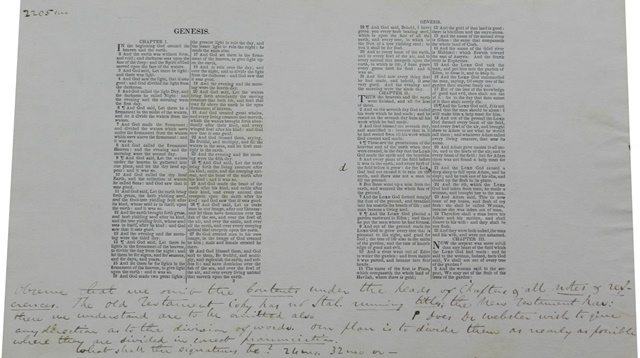
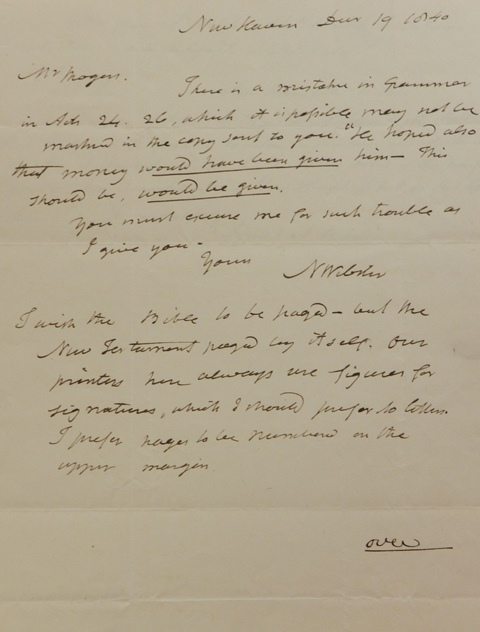
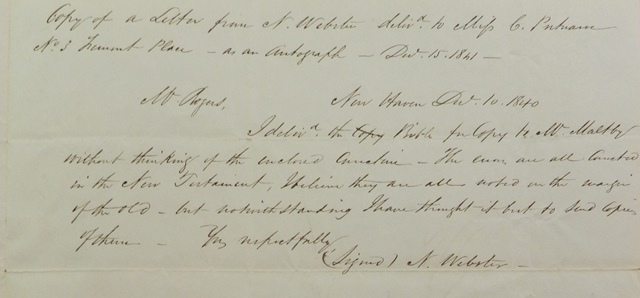
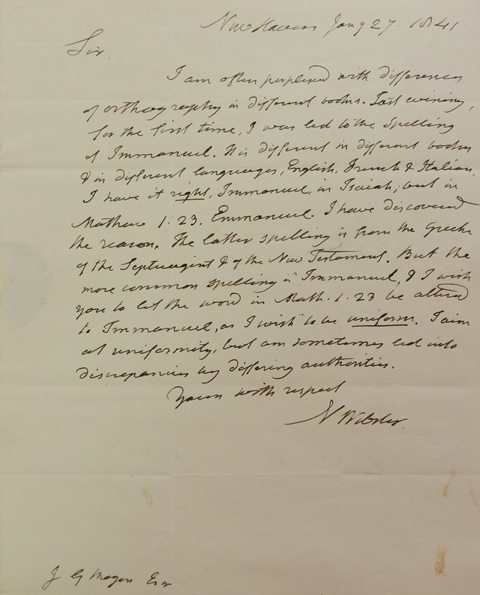
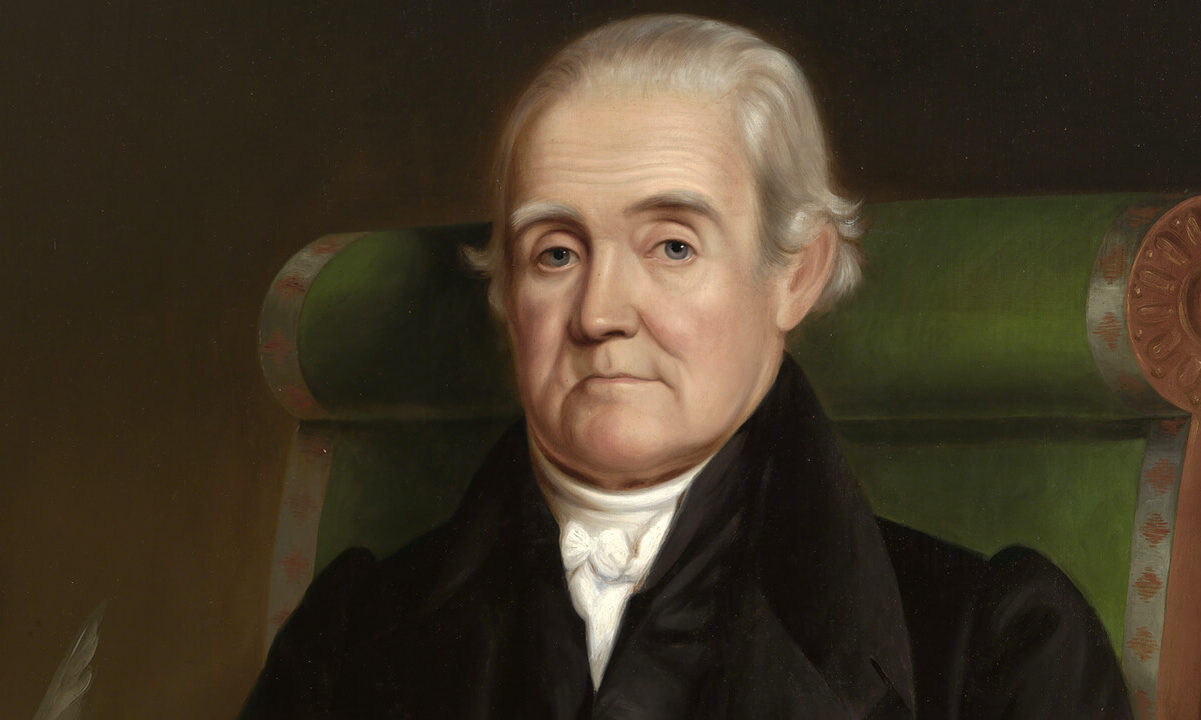
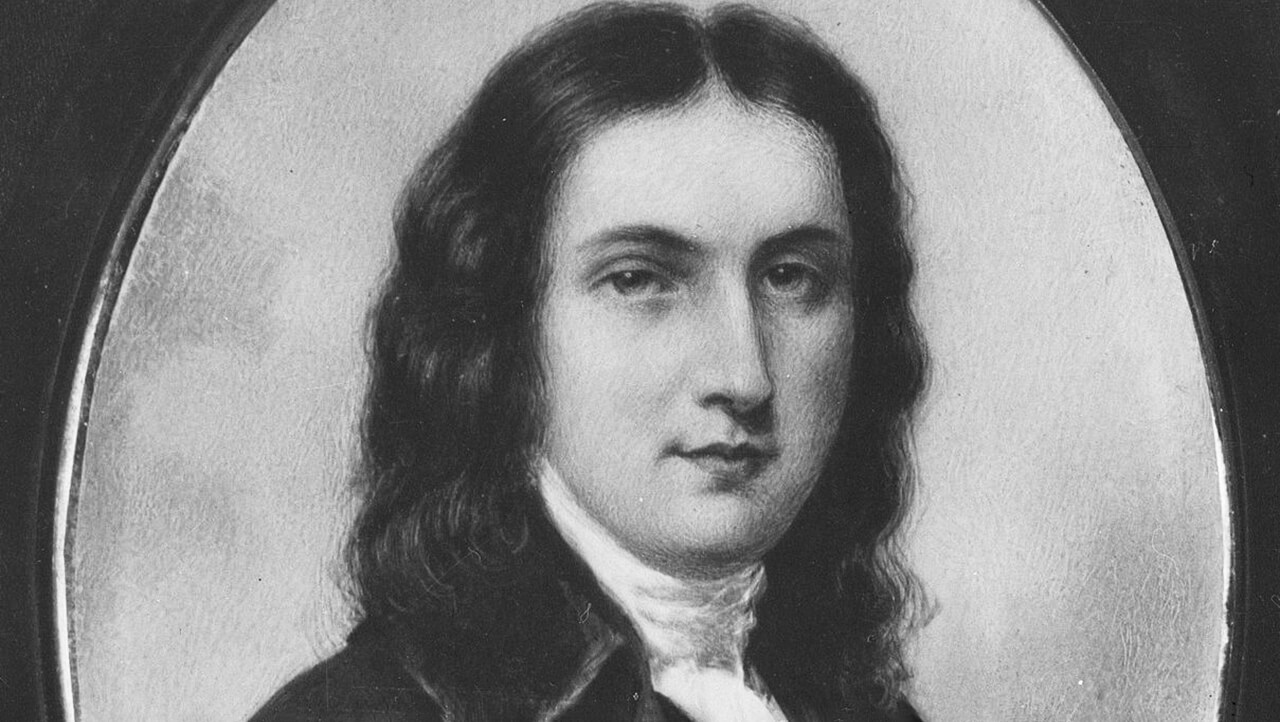
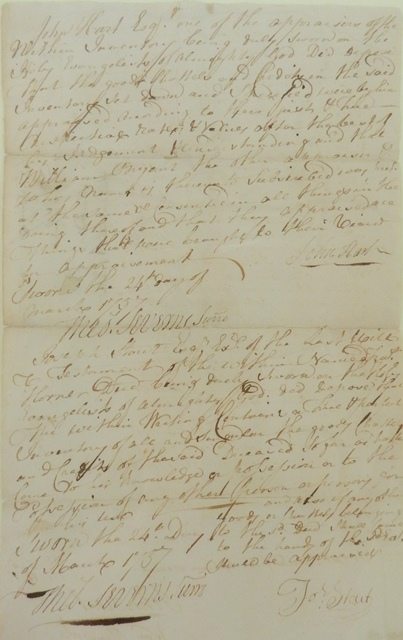
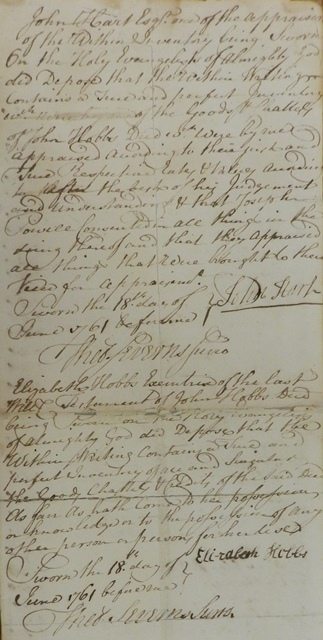
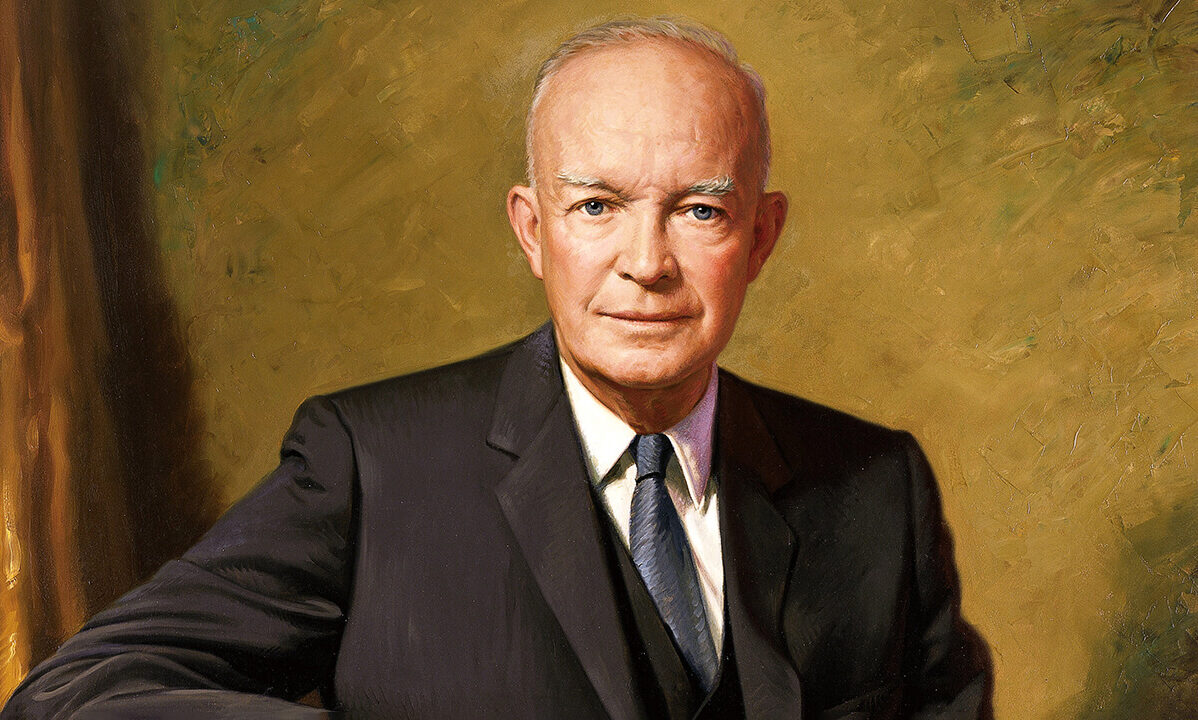
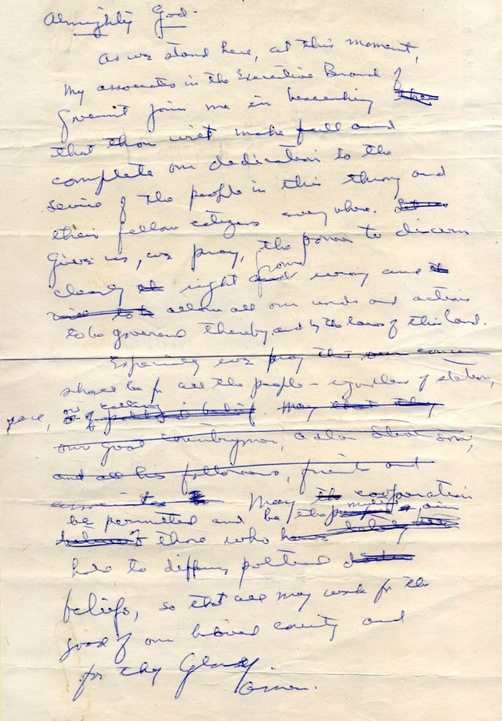


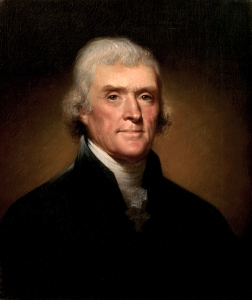 As the Founding Fathers retired and grew old in the nation they had worked so hard to create, many people wrote to them from all over the world for a wide variety of reasons. In fact, it is estimated that Thomas Jefferson wrote at least 19,000 letters throughout the course of his life. And that’s a conservative estimate, in all likelihood he wrote a vast number more that have not survived.
As the Founding Fathers retired and grew old in the nation they had worked so hard to create, many people wrote to them from all over the world for a wide variety of reasons. In fact, it is estimated that Thomas Jefferson wrote at least 19,000 letters throughout the course of his life. And that’s a conservative estimate, in all likelihood he wrote a vast number more that have not survived.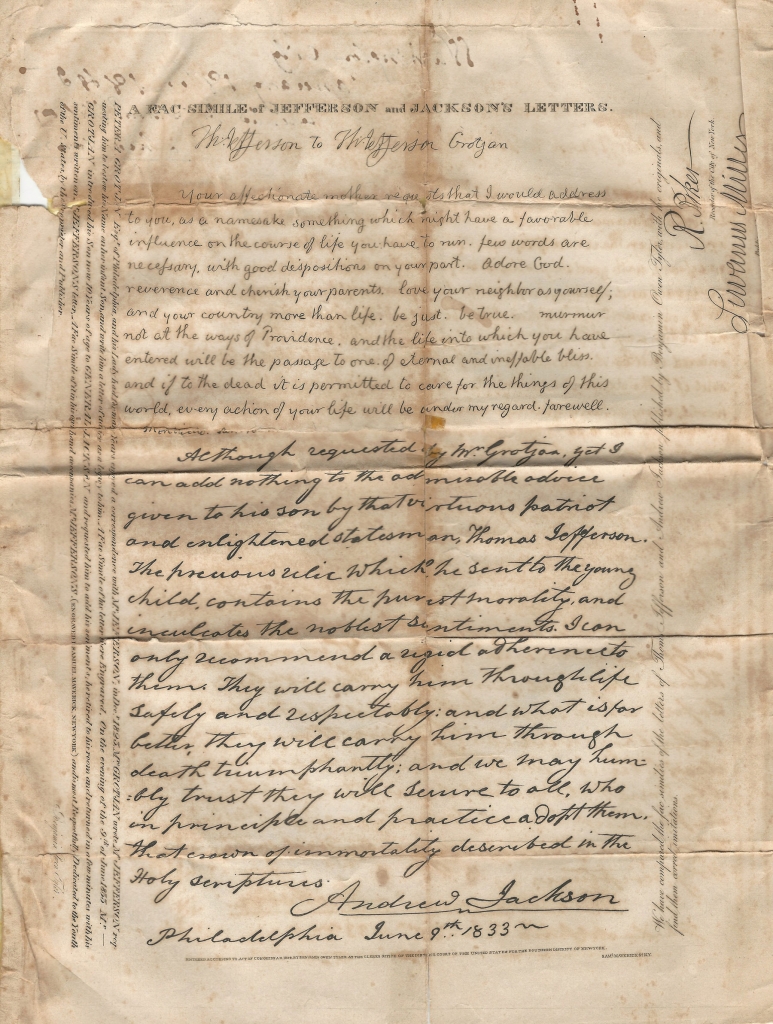
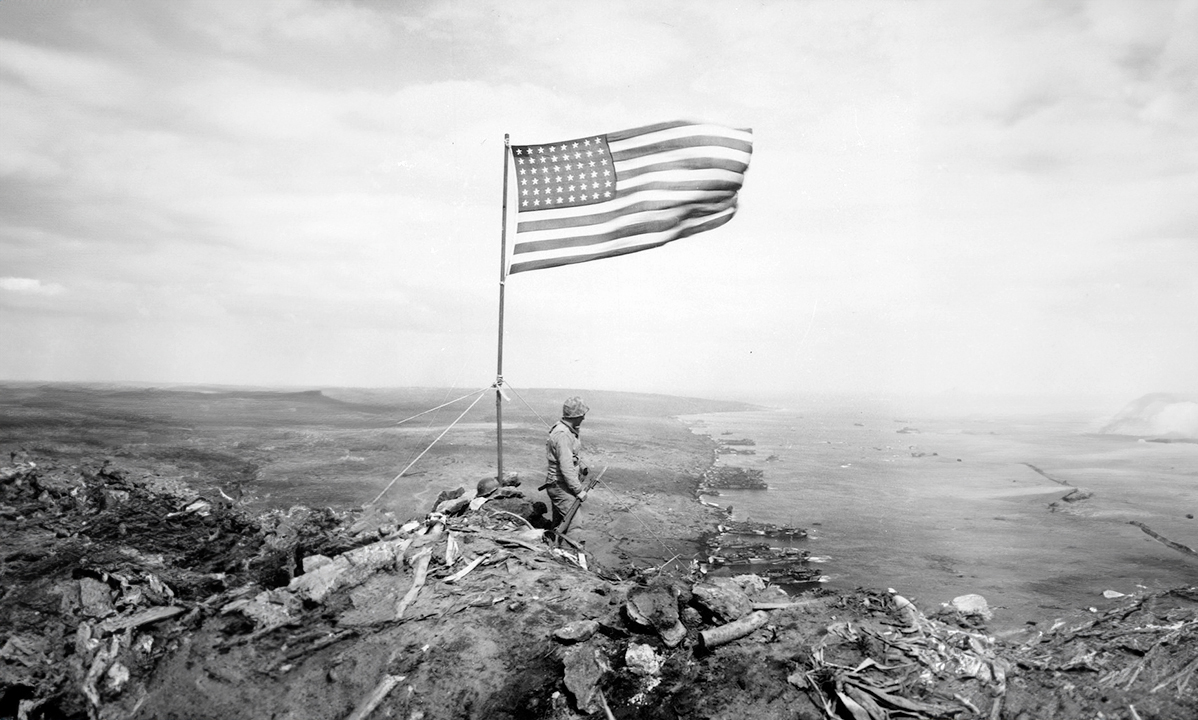
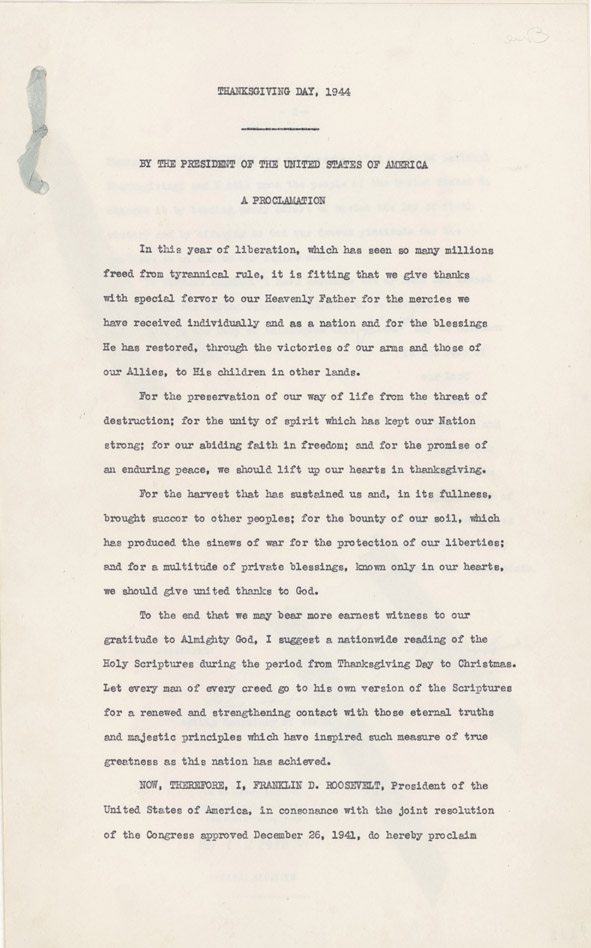
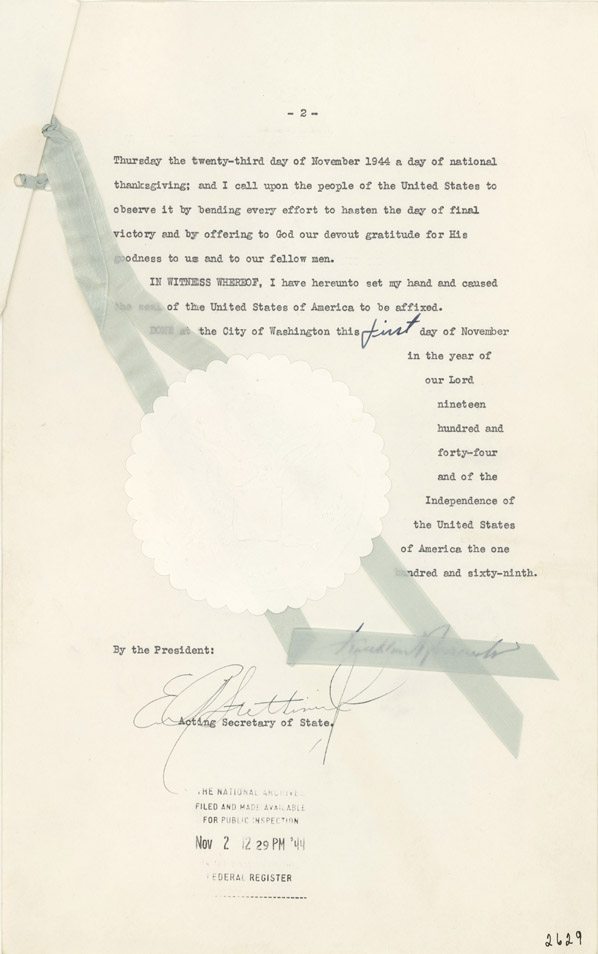
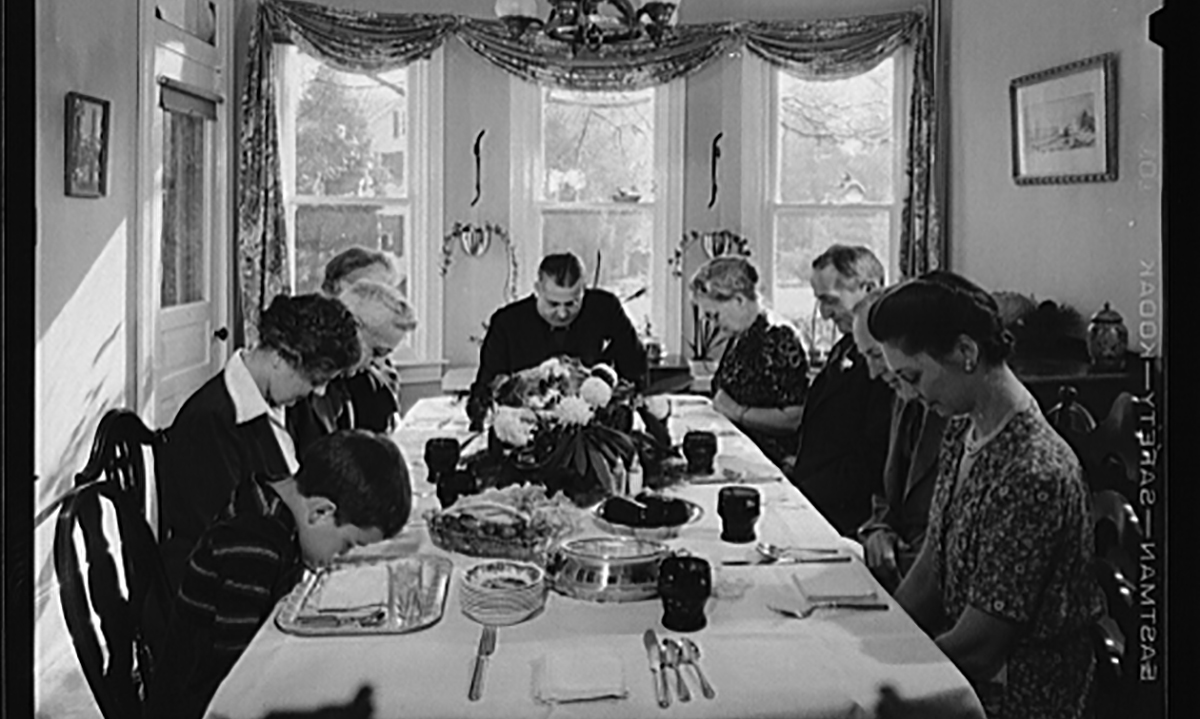
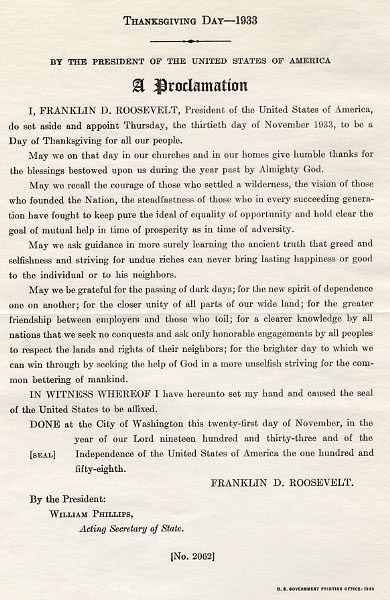
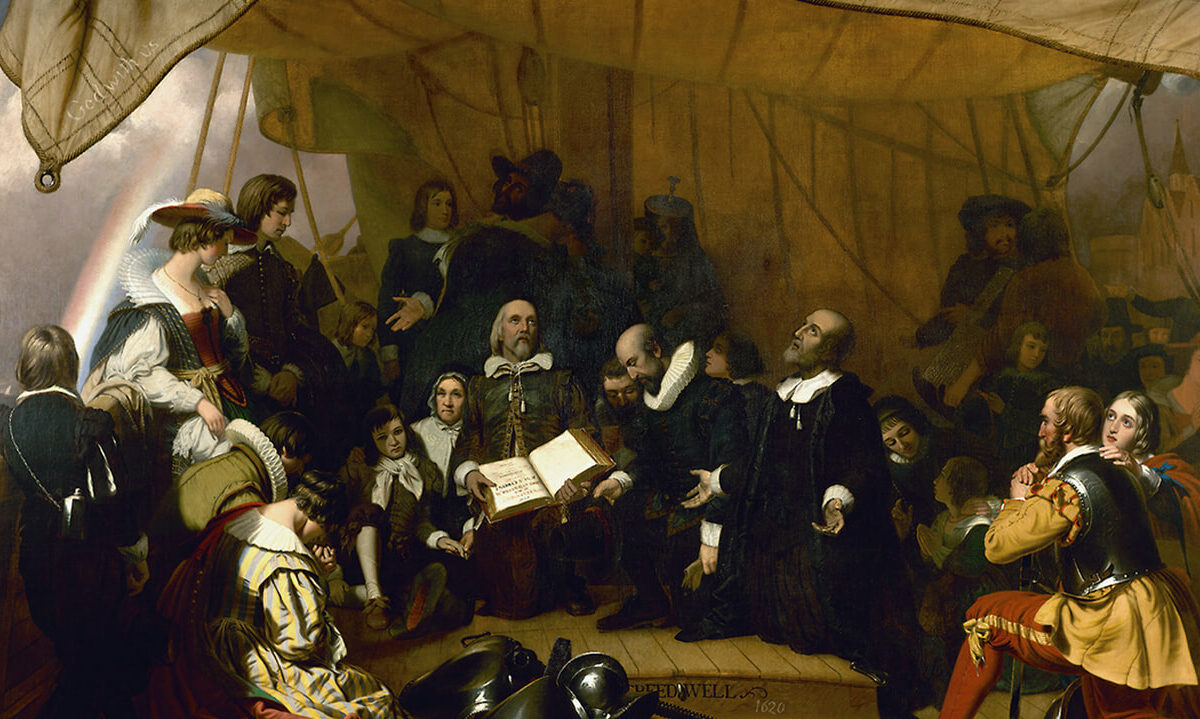
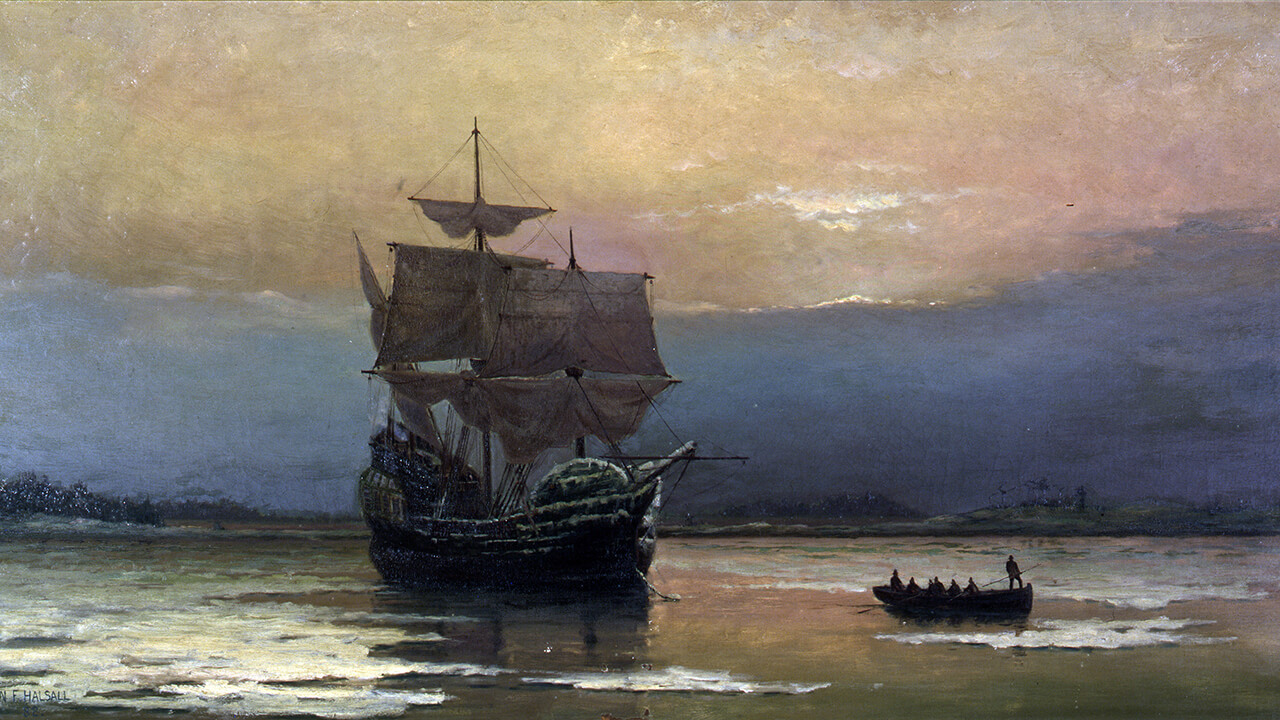
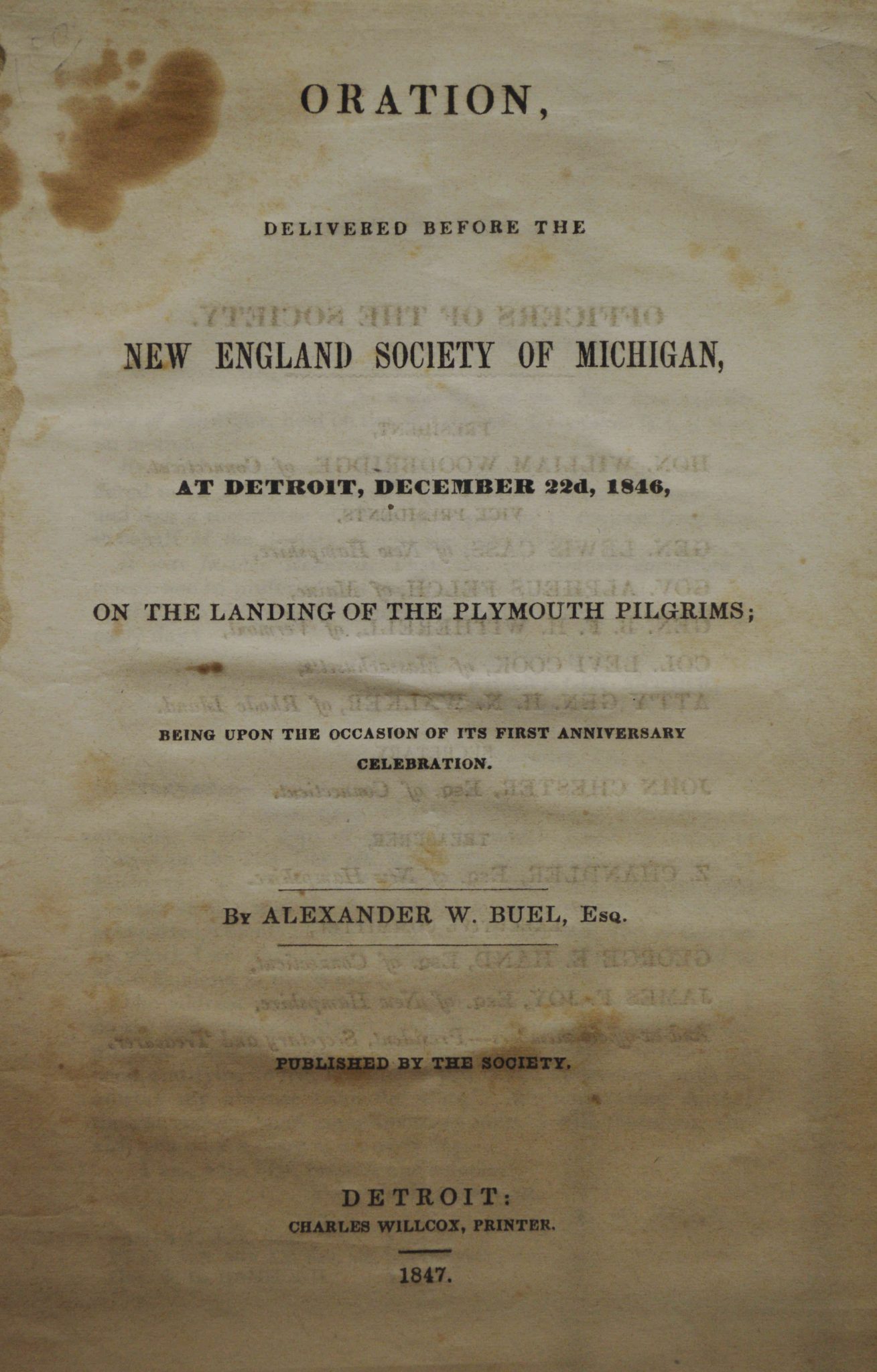

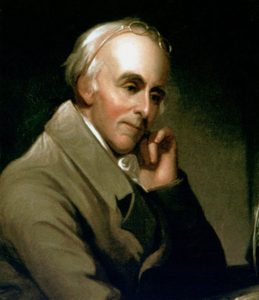 The Philadelphia Bible Society, America’s first Bible society, was officially organized on December 12, 1808. The Rev. Dr. William White was president of the Society and Declaration signer Benjamin Rush was a vice president.
The Philadelphia Bible Society, America’s first Bible society, was officially organized on December 12, 1808. The Rev. Dr. William White was president of the Society and Declaration signer Benjamin Rush was a vice president.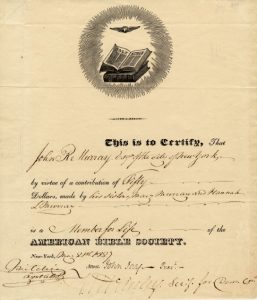 WallBuilders has a vast collection of original documents, including many items related to so many of America’s early Bible societies. One item that can be found in our library is an original Bible published by the Philadelphia Bible Society
WallBuilders has a vast collection of original documents, including many items related to so many of America’s early Bible societies. One item that can be found in our library is an original Bible published by the Philadelphia Bible Society